Business & Management
EfD Takes Research findings to Parliament: Advocates for Regulatory and Policy Framework to Support Transition to Clean Energy for Households
Published
1 year agoon
By
Jane Anyango
A team of researchers from Makerere University Centre for Environment for Development Initiative (EfD-Mak Center) on Friday 3rd May 2024 went to Parliament to share study findings on Uganda’s heavy reliance on fuel wood and charcoal to guide the country and, in particular Members of Parliament in their policy formulation.
Research fellows Prof. Edward Bbaale, Dr. Peter Babyenda, Dr. John Sseruyange, and Dr. Nick Kilimani undertook a study titled, “Promoting Inclusive Clean Energy Transition in Uganda: Evidence, Challenges and Policy Options”.
The team studied people’s perceptions of cooking energy systems in Uganda, through a document review and Focused Group Discussions, their level of knowledge about the possible effects of using energy systems, the challenges they face when using various energy systems, and their suggestions for promoting the use of clean energy.
Findings indicated an over-reliance on biomass across the country with charcoal being the major energy source in the low-income suburbs of Kampala. Evidence also points to the inherent fear of electricity and liquid petroleum gas, weak awareness, and poor regulatory systems to be the leading obstacles to an energy transition process.
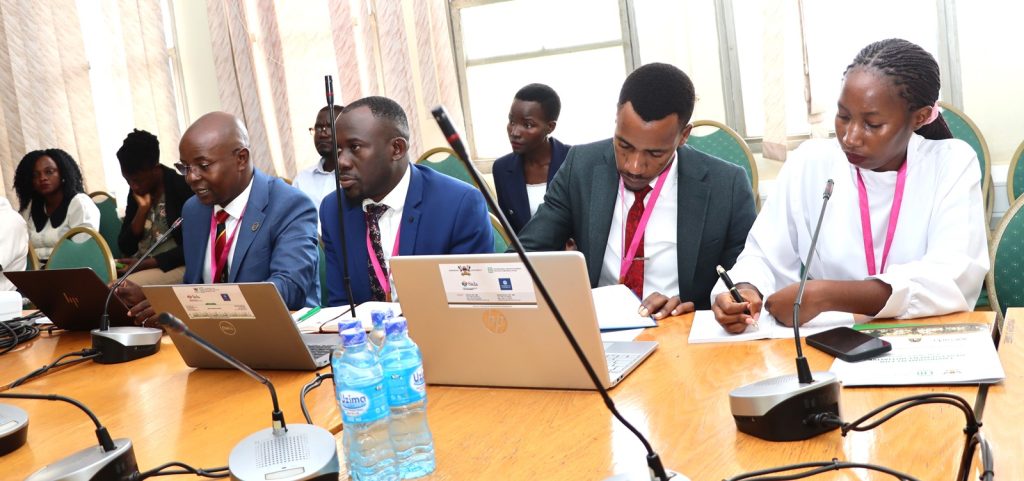
The team, led by the Centre Director, Prof. Edward Bbaale, who is also Director of Research and Graduate Training at Makerere University interfaced with the Members of Parliament on the Committee of Environment and Natural Resources. Bbaale presented on, “Biomass Dependence and Green Transitions: Implications for Policy”.
“Parliament is a very important arm of government, responsible making laws, performing oversight role and therefore our research findings must be shared with them so that they use the information that we have generated through research for them to do their legislative function better.
“Makerere is a research intensive University but at the same time, the main objective of the current strategic plan is to generate as much research as possible. But number two, is to package this research and market it and share it with the rest of the country so that it can be useful and cause a policy and behavior change”, Prof. Bbaale justified the meeting.
Sharing the issue of green transitions, especially in the area of energy transitions in different sectors, as critical, Bbaale told MPs that over 3 billion people globally depend on biomass for energy which exacerbates climate change, forest loss, water scarcity and land degradation.
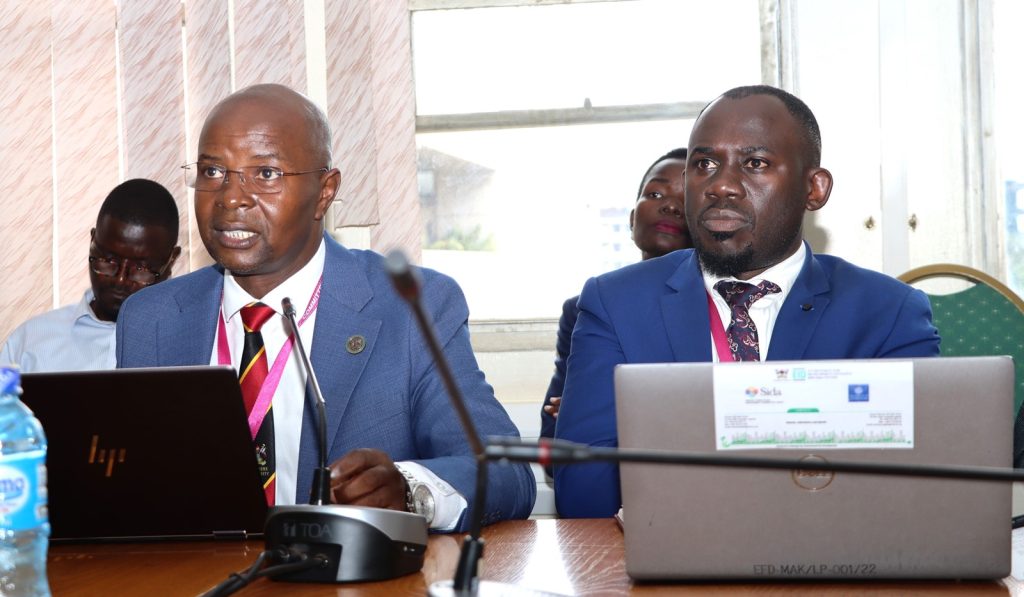
With a projection of the rise in the Global population from 8.1 to 9.8 billion by 2050, Bbaale decried that more than 700 million people survive on less than $2.15 daily which leads to increased reliance on biomass.
In Sub-Saharan Africa, the professor said over 900 million people use biomass for cooking while Uganda has high reliance on biomass with 85% of the households using firewood, 13% using charcoal .
Charcoal burning and firewood collection according to Bbaale is partly responsible for Uganda’s rapid declining forests cover. Uganda’s Forest cover dropped from 20.4% in 1990 to 9% in 2015, driven by energy needs. Currently forest cover stands at 13.3%. Other factors like logging, farming and development also contribute to forest loss.
Bbaale also informed parliamentarians that heavy dependence on biomass energy poses health risks particularly to women and children. Household Air Pollution, according to Bbaale affects over 20 million Ugandans, causing 13,000 deaths annually, with women and children bearing the brunt.
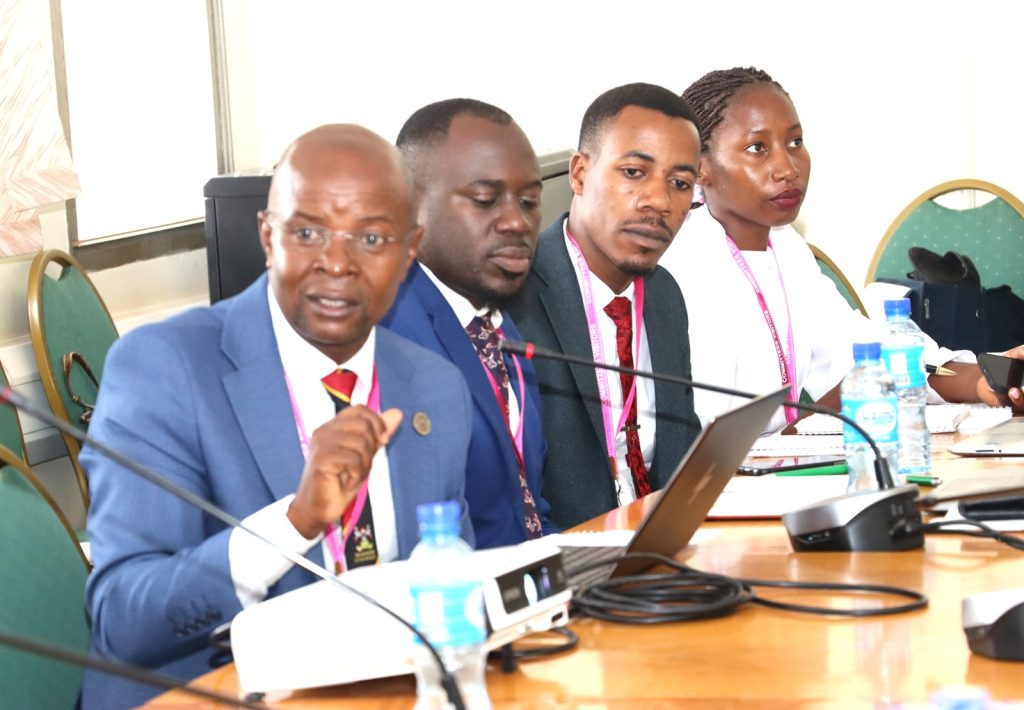
“…firewood and charcoal are dirty sources of energy. Respiratory diseases, eye diseases, and others can be attributed to the household air pollution, but as a result of cooking, we also contribute to the bigger greenhouse gas emissions, then we see climate change manifest in extreme weather conditions like prolonged drought spells, floods and very heavy rainfall beyond the normal, and this has far-reaching effects on our economy and environment”, He explained.
Bbaale informed the committee about the social economic implications of high dependence on biomass. He said, wood fuel collection distresses child schooling in rural areas as children lose time collecting wood fuel, affecting their education.
Economically, Bbaale told Members of Parliament that dependence on biomass as an energy source impedes on female labor force participation. Ugandan rural women Bbaale reported spend 9.1 hours per week on fuelwood collection, compared to 2.5 hours for men, hence reduces womens’ time for employment and education and this perpetuates gender inequalities in the labor market
In addition to increasing Green House Gas emissions, Bbaale explained that heavy reliance on Biomass increases Uganda’s vulnerability to climate shocks. Uganda is highly vulnerable to climate shocks and ranks 13th position out of 192 countries in terms of vulnerability with low capacity to deal with climate change effects ̶ 160th/192.
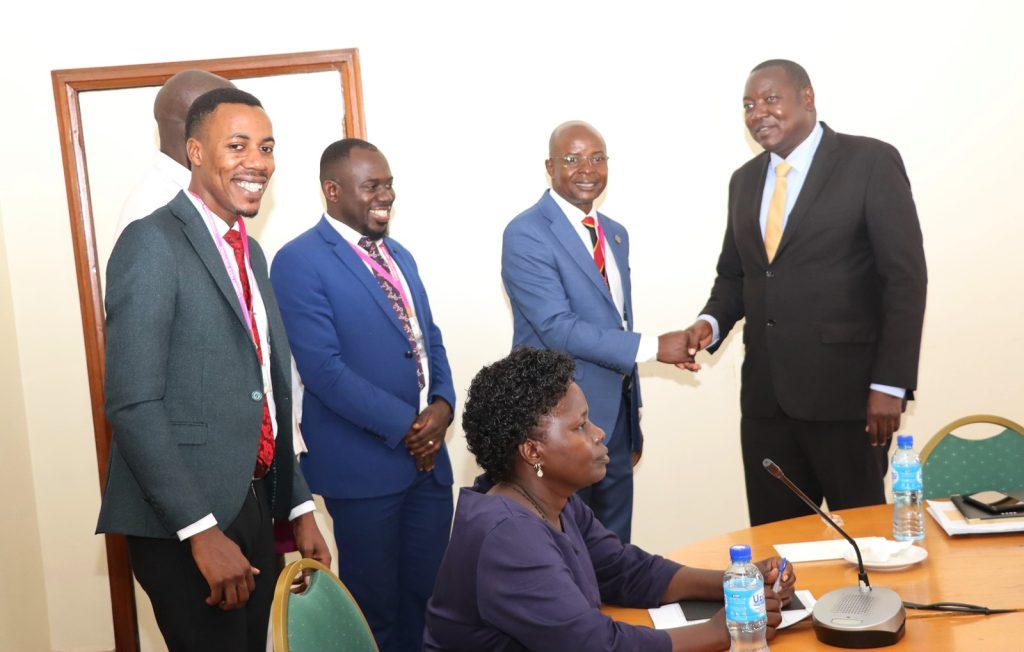
Green Transitions
The Director proposed an economy free from fossil fuels, sustainable consumption of natural resources, less biomass energy dependence and low-carbon solutions as stipulated in Uganda’s Vision 2040 and NDP III and the Nationally Determined Contributions – a climate action plan to cut emissions and adapt to climate impacts.
Within Energy, Bbaale expressed the need to increase the use of renewable energy, improve efficiency of biomass production and use, encourage industrial fuel switching, increased energy access for households and promote cleaner cooking technologies.
Noting that Uganda’s Gross National Income per capita is $930 and close to World Bank’s Lower Middle-Income Status ($1,086), Bbaale said the energy ladder indicates a delayed transition towards clean energy.
With 85% households relying on firewood, 13% depending on charcoal and only 2% using clean energy sources like gas or electricity, Bbaale attributed the delayed transition to challenges mainly availability, affordability, reliability, efficiency, and cultural considerations.
In terms of availability, the Professor told the committee that about half of Uganda’s population has access to any form of electricity largely due to the rural electrification program with a number of households not connected to the grid due to high costs and selective distribution of electricity lines.
Bbaale also reported that whereas the National LPG Supply Infrastructure Development and Promotion targets improving the LPG supply, storage and demand the main gaps include high initial costs, limited refilling centers especially in rural areas, high refilling costs and counterfeits.
In terms of reliability, Parliamentarians heard that only 24% of Ugandans have access to more than 4 hours of electricity per day with inadequate voltage in some areas and limited LPG refill centers.
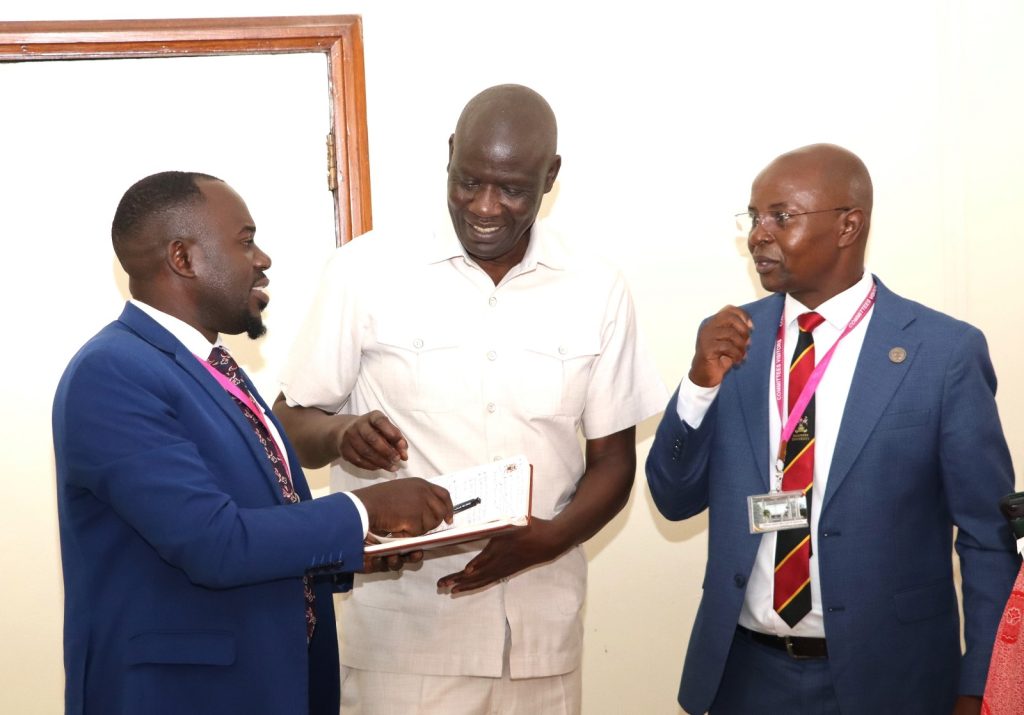
Policy recommendations
Prof. Bbaale tabled recommendations on infrastructure development, financial incentives, sensitisation and awareness raising, capacity building and technical assistance as well as regulatory and policy framework.
On infrastructure development, Bbaale implored government to invest in expanding electricity grids to reach remote rural areas, establish even distribution LPG refilling centers, develop energy storage infrastructure for reliable power supply from renewable sources and, address rural electrification challenges such as connection costs and distribution issues.
Speaking on financial incentives, the professor asked government to provide subsidies and grants to reduce initial and refilling costs, offer low-interest loans for affordable clean energy technologies, implement tax incentives to encourage clean energy investments especially by the private sector and also provide flexible payment plans or pay-as-you-go schemes for clean energy systems to improve accessibility for financially constrained rural populations.
“We must go green and if we must green our economy, a very big part of it is energy transitions. And the question is, what are the alternative sources that are cleaner? It is electricity, it is LPG. And then will the households afford?
“And as a result we are saying, legislators play an oversight function, they come up with the rules and regulations that govern our country. What can be done, for example, to make clean energy sources affordable? Let Members of Parliament think about some financial incentives, maybe some very cheap loans, advocate for subsidies from government, can be to increase their availability by encouraging the private sector by reducing taxes that overburden them to do business” Bbaale explained.
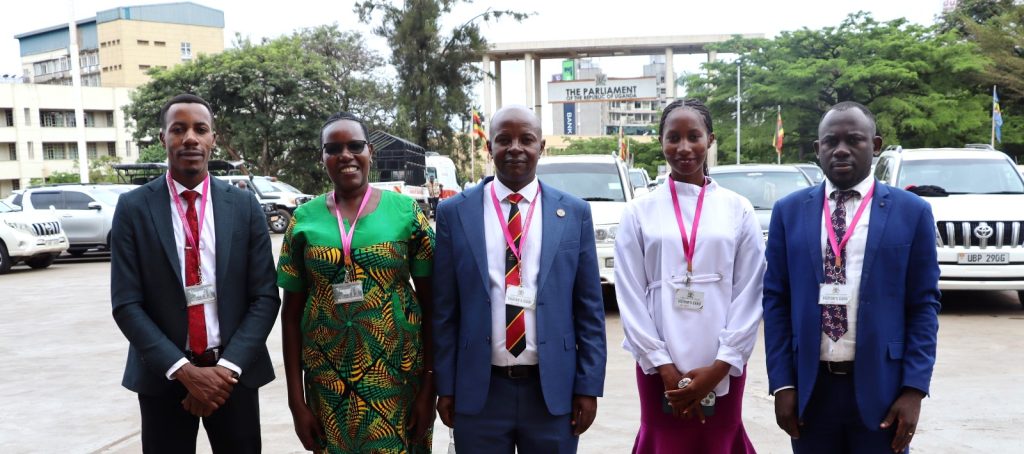
He also recommended sensitization of the public to raise awareness about subsidies (cooking tariff for electricity in Uganda) and clean energy alternatives, like Tanzania’s national cooking conference and to encourage mindset change towards LPG and biogas, led by Parliamentarians.
“For people that use electricity for cooking, very few households, including those that are around Kampala, know about electricity subsidy. And the Minister of Energy is of the view that electricity is the cheapest source of power these days. Even households that are well-educated, are not aware of what government has done in promoting the clean cooking”
“And being opinion leaders from their different constituencies, Members of Parliament can also act as champions of mindset change wherever they are. Maybe they can be in their constituency, act as a center to demonstrate some of the clean energy sources. How is it working? How is it possible?” Bbaale said.
Government according to Bbaale should offer training programs to rural communities on clean energy technologies and maintenance, provide technical support for installing and maintaining clean energy systems and facilitate knowledge-sharing platforms for rural communities to learn from successful projects.
Bbaale also proposed regulatory and policy frameworks in regard to standardization. He stressed the need for a law and policy in regard to prices and standards with Uganda National Bureau of Standards to rule out counterfeits.
Parliament pledges to support policies on clean energy transition and engage line ministries to collaborate with EfD as a research arm
The Chairperson Parliamentary Committee on Environment and Natural Resources, Dr. Emmanuel Otala who is also Member of Parliament for West Budama South Constituency, Tororo District commended the university dons for sharing the research findings to guide policy formulation.
“And I must say that they are spot on in that their research findings are pointing the country to protection of our environment. And as they concluded by saying that yes, God always forgives, human beings sometimes forgive, but nature will never forgive if we do something. I think that was a fundamental statement, really,” Dr. Otala recalled.
Citing recent and occurring disasters that have ravaged the country due unsustainable use of the environment, Dr. Otala emphasized the need to balance development with environmental conservation.
“Most of our people still use firewood, biomass for cooking. And this is not the right way to go. We must look at renewable sources of energy and how to conserve our forests and that is how they bring in the issue of Liquefied Petroleum Gas.
Unfortunately, government already made an attempt, but at a very small scale. And so, we need to scale up this project of substituting the use of biomass for cooking with the Liquefied Petroleum Gas and even use biogas from homes.” Dr. Otala noted.
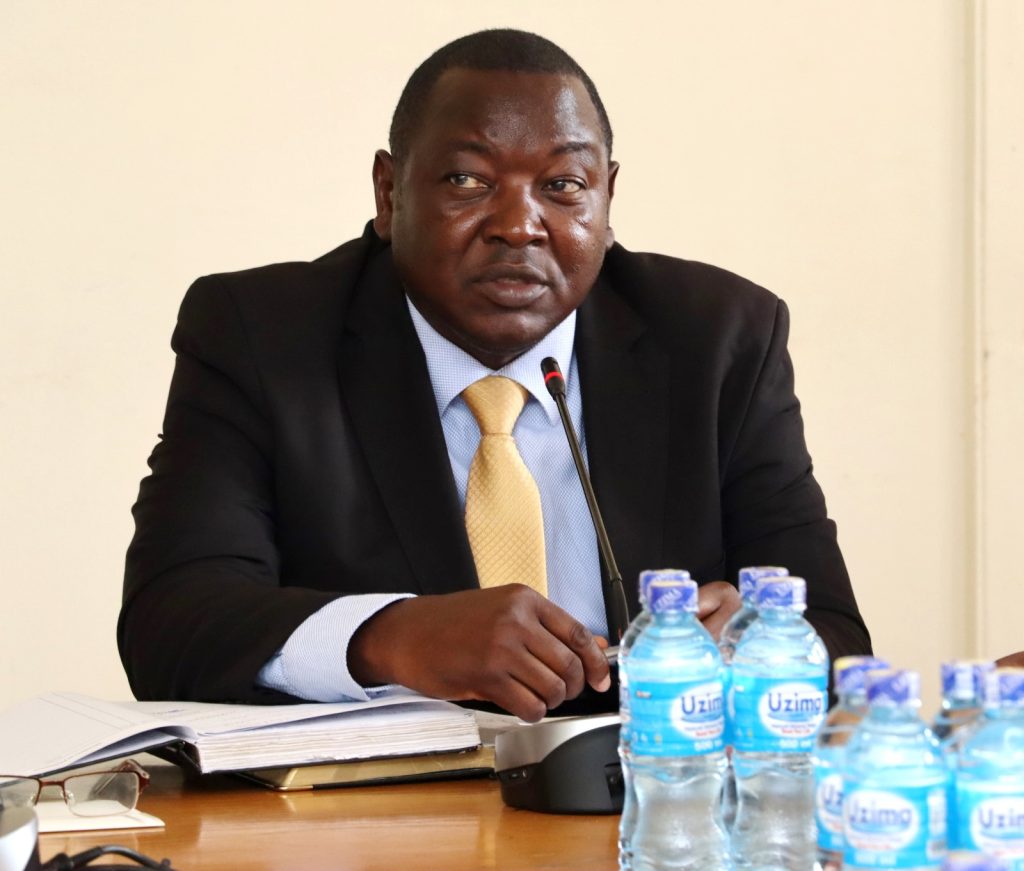
Otala pledged total commitment to working with the EfD-Mak center and line ministries to support policies to a green transition.
“What the EfD is doing is in keeping with the current global initiative of trying to address climate change, of conserving the environment, and the turning away from the use of fossil fuels to use of renewable energy for cooking. And we think that as policy makers, most of the policies they recommended are very good and we are going to take them up”. He said.
Dr. Otala also pledged to share the research findings with the Minister of Water and Environment and his team, discuss the proposed policies and interventions and interest the ministry to utilize EfD as a research arm.
“The use of evidence-based policy is critical, and I can’t explain it more. So we shall definitely bring it to the attention of the Minister that in Makerere there is this initiative.
…we shall definitely help you to highlight the need for collaboration in terms of research, but also translating research findings into actual activities on the ground for the benefit of our people based on research”. Otala affirmed.
Members of Parliament speak out
Shadow Minister for Environment and Energy who is also Woman Member of Parliament representing Kiboga District, Christine Kaaya Nakimwero requested the EfD Researchers to research on the census tools and fossil fuels that the country is looking up to.
“One, we have not looked at the census tools for the census that is going to begin on 10th May this month, we would request you to look at the tool urgently and see if ownership of energy tools in households, for us to know what households really use.” Kaaya submitted
Kaaya also requested researchers to appreciate that Uganda is set to make money from fossil fuels and to research into emissions resulting from different energy sources and initiatives like afforestation.
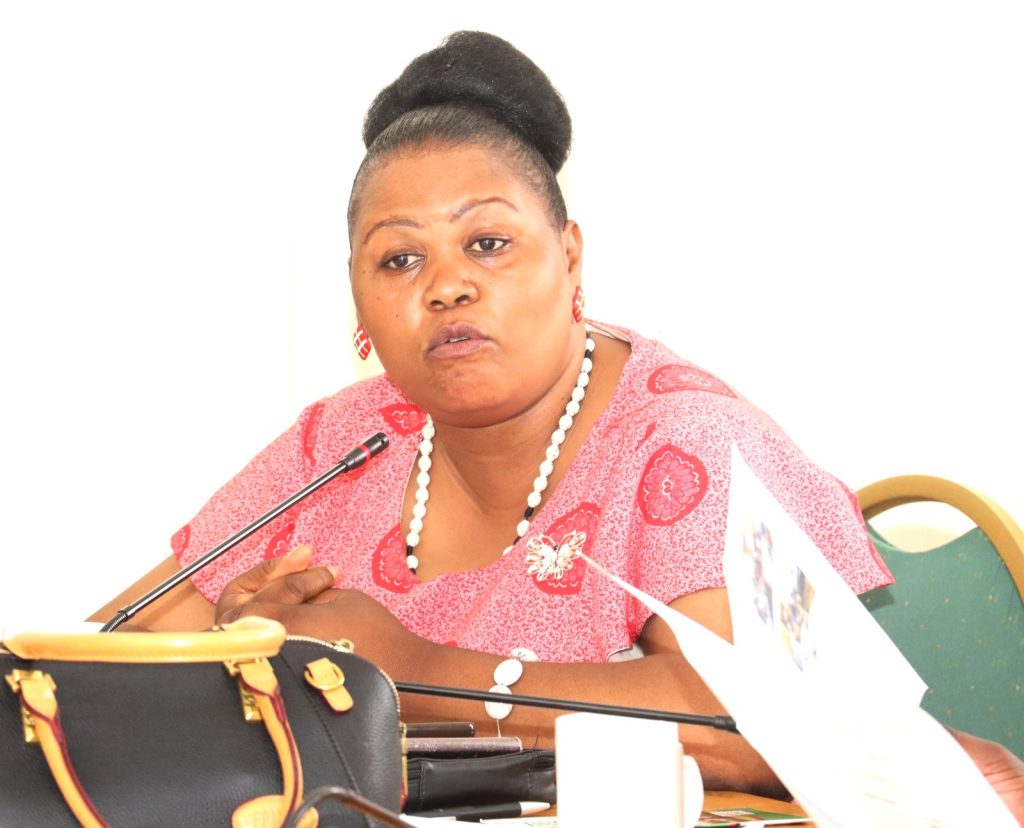
“How much emissions come from production of one liter of fossil fuel? And what do we need to do to offset emission from one liter of fossil fuel? That is the exact message we’re supposed to share with our people. People need to know, if I plant five trees, does it help?” She pondered.
Kaaya also decried the issue of counterfeits in the energy sector calling on the committee members to discuss more on how the Uganda National Bureau of Standards can be supported to check counterfeits. She observed that affordability and culture are some of the factors hindering the adoption of clean cooking energy.
“There is a gender aspect in making people run away from use of biomass. I’m supposed to cook. Without food, there is no marriage. So, when we are phasing out biomass, we must have that at the back of the mind. I’m in Kampala, you have refused people to bring charcoal. I’m here in Kampala, I’m married, I’m supposed to cook, I don’t have LPG, I cannot afford electricity.
“And how long are we going to wait to resolve this matter? You cannot just stop charcoal vehicles in Kiboga, please don’t proceed to Kampala. How do you expect us to make our husbands eat and the entire family? If you cannot answer that, then let’s go slow. We need to advise the President very appropriately.” Kaaya said.
Recently, the President of Uganda banned the commercial making, transportation and selling of charcoal to safeguard the environment.
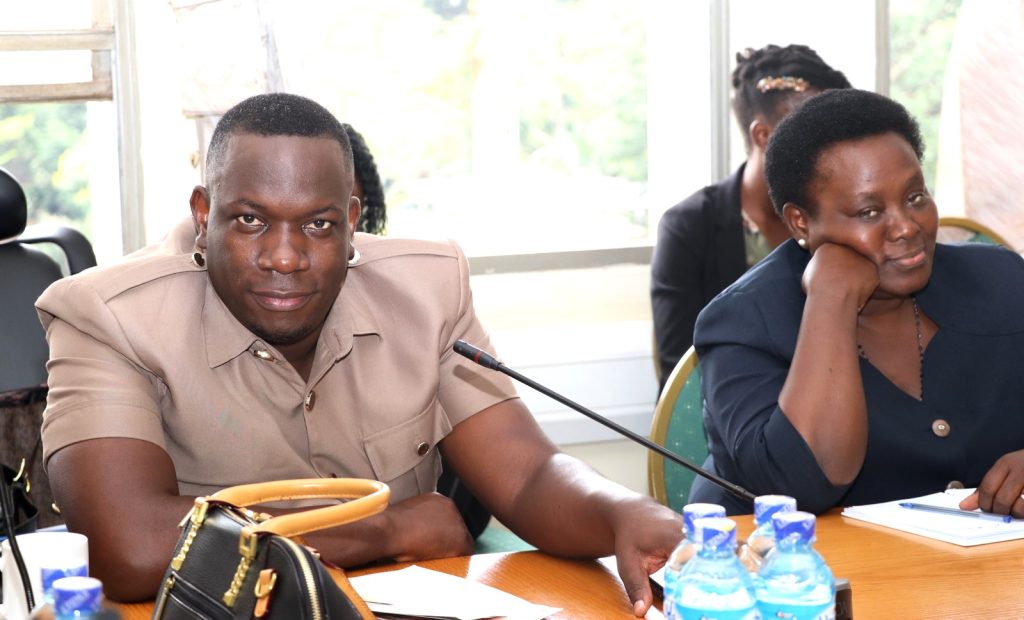
The other cultural barrier to adoption of clean cooking energy according to Kaaya is the method of food preparation. In Buganda and other cultures that eat bananas, one is not a wife if she cannot prepare bananas, squeeze and leave them on fire in banana leaves for long hours until it is soft before serving.
“It is that cultural practice which is becoming very difficult. The electric cooker cannot accommodate banana leaves. After squeezing bananas, you are supposed to leave it on fire. It becomes very soft, such that even somebody who will come at midnight, finds it soft and hot. That is what we are battling with in our cultural settings. With this new gadget, you can’t have it. And then, in other words, you are not a good wife.” The MP said.
Hon. Orone Derrick Member of Parliament from Gogonyo county encouraged researchers to put more effort on the media awareness to the public.
“We as policy makers, we shall really support you but put more awareness of the media to the public that’s the only encouragement. I want to thank the chair for organizing these researchers to come and tell us, educate us, sensitizing us about the clean energy”. Orone said.
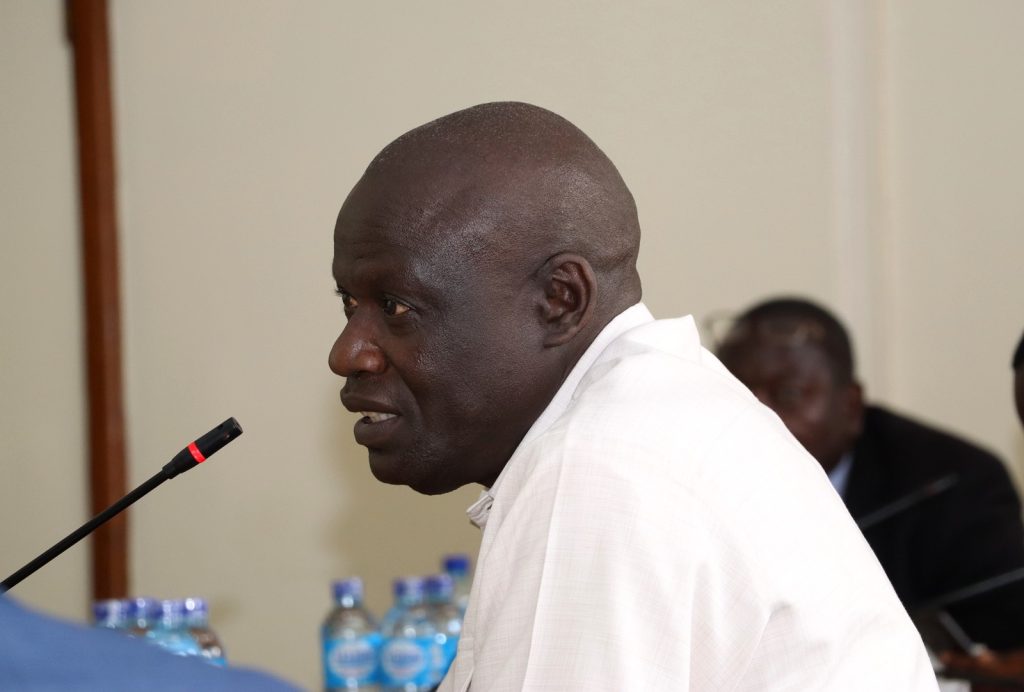
Hon. Apollo Yeri of Tororo Municipality implored the university to look into cheaper clean energy technologies like the use of biogas from animal and human waste.
“There are some people who have started to manufacture biogas themselves locally using cow dung and pit latrine. It is a bit cheap to produce. So if you encourage them to manufacture their own biogas, and maybe teach them how to store – because they don’t store anything, just use and sometimes they overuse. If they can store, they can even sell excess and more people would be encouraged”, Yeri suggested
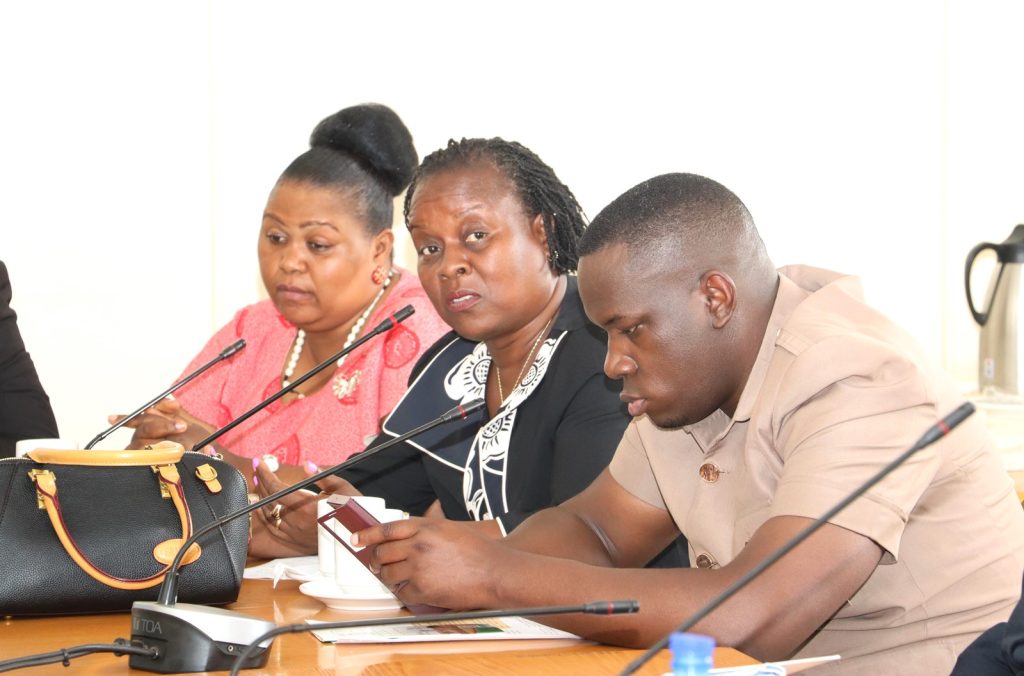
Hon. Clare Mugumya, the District Woman Representative of Isingiro was hopeful that Uganda’s oil wells from Kirenga would provide cheap gas for the population. She noted that other clean energy sources and gadgets are costly for ordinary Ugandans.
“Otherwise, behavior change alone will not be possible, even if we sensitize, unless the issue of affordability is seriously addressed by government”. she said.
Jane Anyango is the Communication Officer EfD Uganda
You may like
-
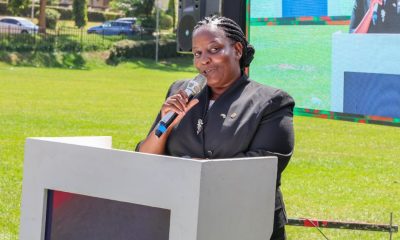

Emorimor Calls for Makerere to Upgrade Parenting Course
-
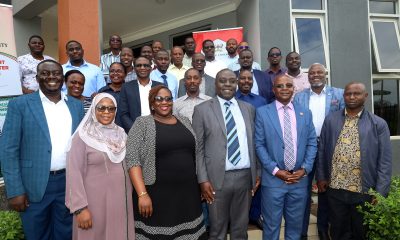

Uganda Deepens Economic Governance with Training on Regulatory Cost-Benefit Analysis
-


UVCF Makes Case for HEAC Programme
-


Mastercard Foundation Board pays its inaugural visit to Makerere University
-
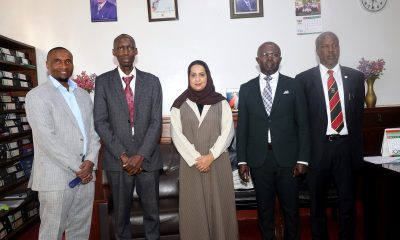

Mak CEES discusses partnership with King Salman Global Academy for the Arabic Language
-
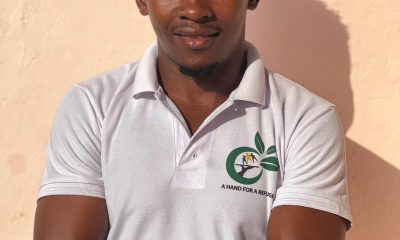

Meet Safali Libia, a Mastercard Foundation Scholar-alumnus who rebuilt his life as a refugee in Uganda
Business & Management
Uganda Deepens Economic Governance with Training on Regulatory Cost-Benefit Analysis
Published
12 hours agoon
June 30, 2025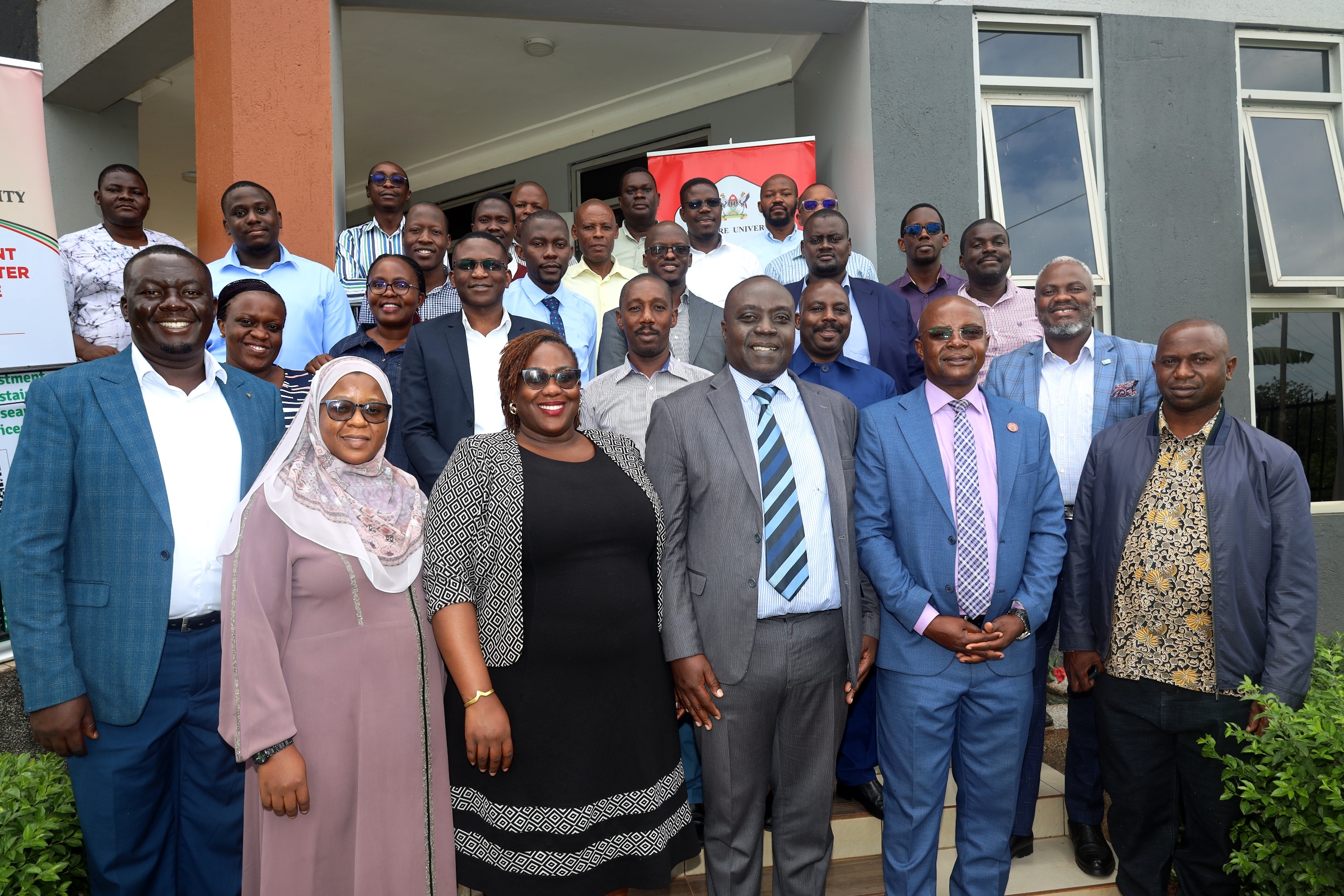
The Ministry of Finance, Planning and Economic Development (MoFPED), in collaboration with the Public Investment Management Centre of Excellence at Makerere University, has commenced a two-week Integrated Regulatory Cost-Benefit Analysis (IRCBA) training in Jinja. The training, which runs from June 30 to July 11, brings together economists and policy analysts from Ministries, Departments, and Agencies (MDAs) across government.
The training was officially opened by Mr. Paul Mwanja, Commissioner for Infrastructure and Social Services at MoFPED, who represented the Permanent Secretary/Secretary to the Treasury. He was joined by Prof. Edward Bbaale, Principal of the College of Business and Management Sciences at Makerere University and head of the PIM Centre of Excellence.
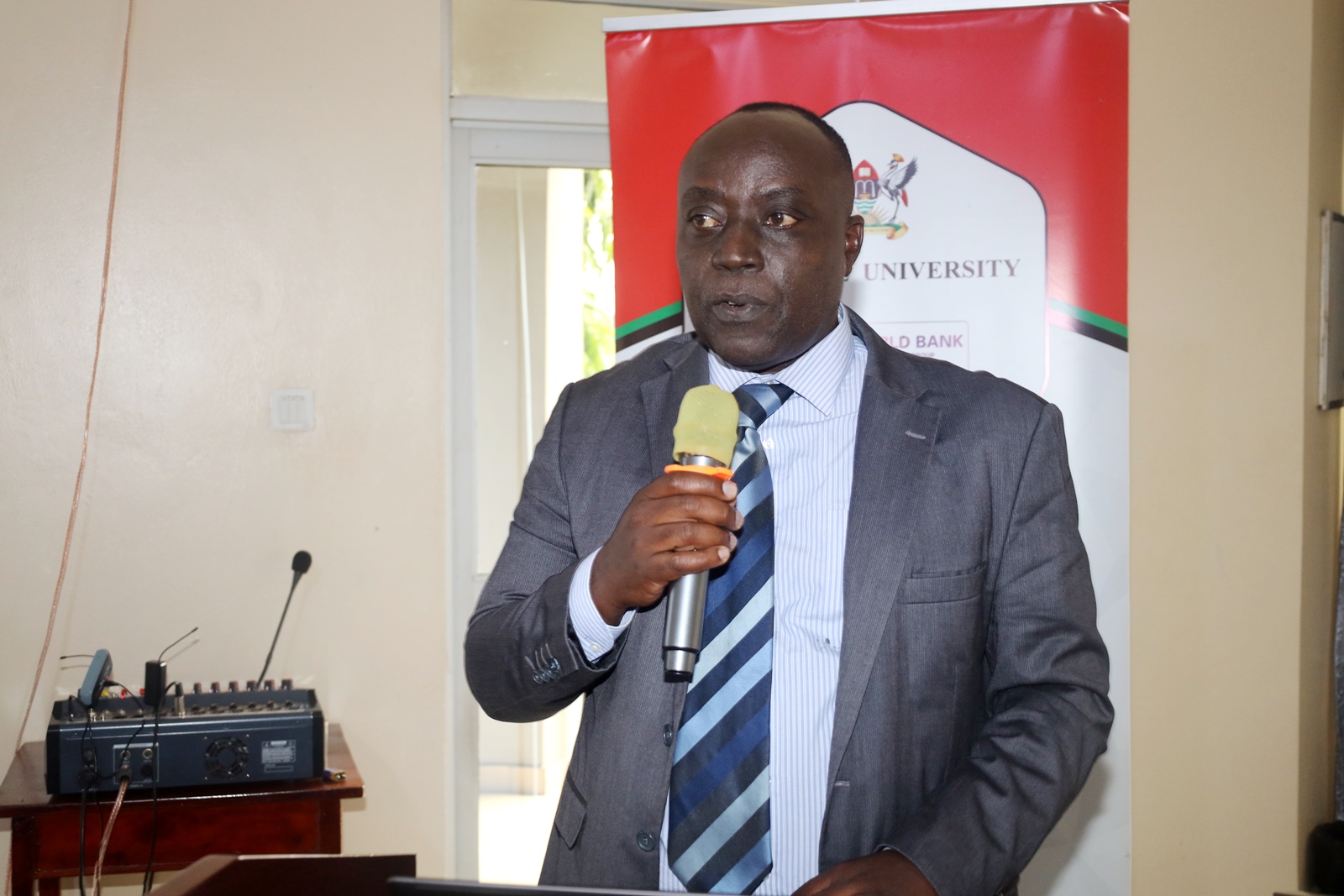
In his remarks, Mr. Mwanja emphasized that the training marks a pivotal step in the operationalization of the Revised Guidelines for Financial Clearance (CFI), launched on June 20, 2025. “These guidelines are more than procedural. They are a critical instrument for ensuring that government policies and legislation are fiscally sound, inclusive, and developmentally aligned,” he said.
Prof. Bbaale echoed these sentiments, highlighting the strategic timing of the training. “This is the first opportunity for many participants to engage practically with the new guidelines. It is part of a long-term agenda to institutionalize a culture of evidence-based decision-making within government,” he noted.
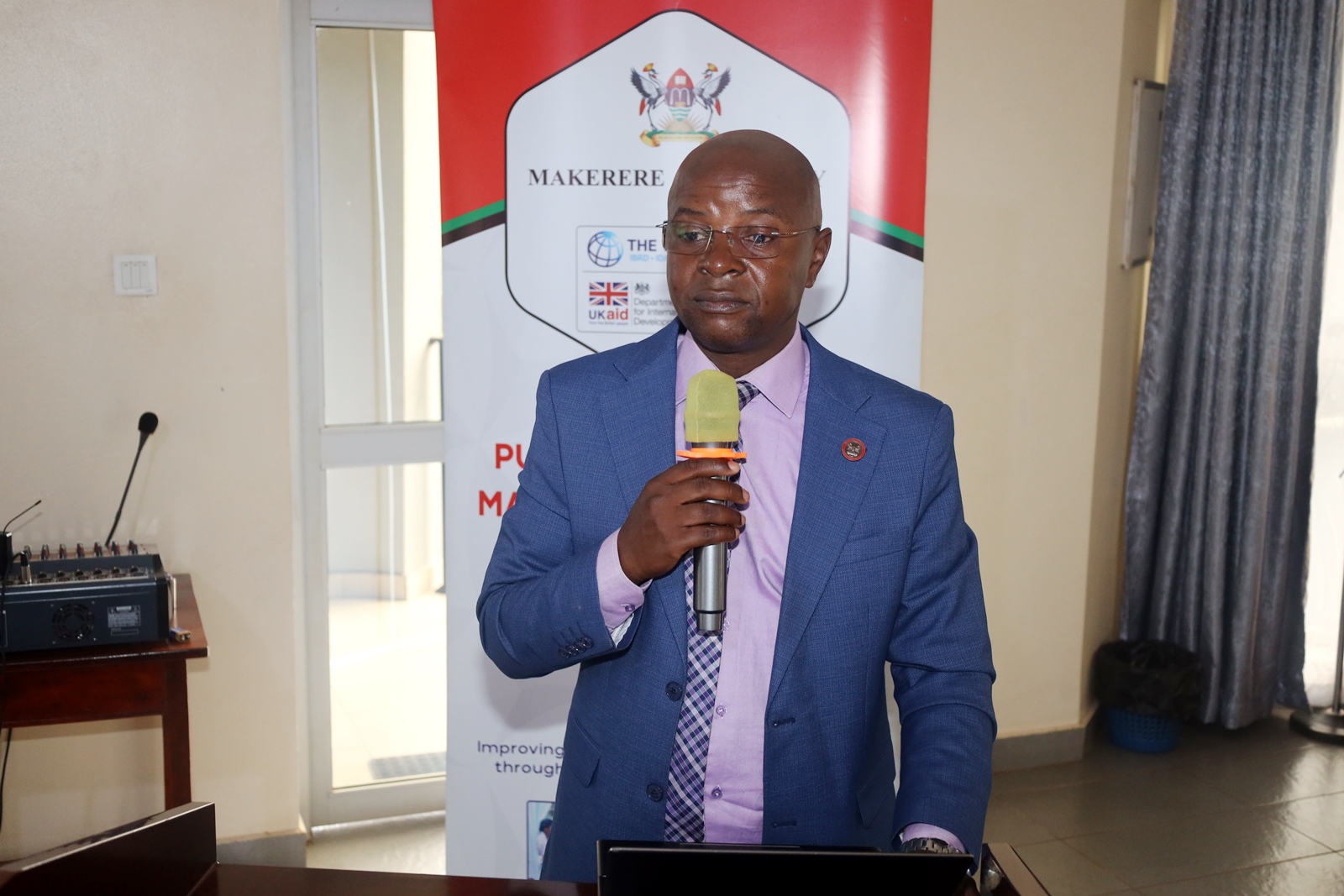
The IRCBA training is structured to build technical capacity in appraising the fiscal, economic, distributional, and risk implications of public policy and legislation. Participants will be introduced to tools such as Net Present Value (NPV), Benefit-Cost Ratios, and Sensitivity Analysis to ensure that all policy proposals are well-justified and deliver value for money.
According to the Revised CFI Guidelines, all requests for financial clearance submitted to MoFPED from July 1, 2025, must now include comprehensive assessments aligned with Uganda’s national development agenda and medium-term expenditure frameworks. The guidelines aim to promote transparency, strengthen fiscal governance, and improve the quality of public expenditure.
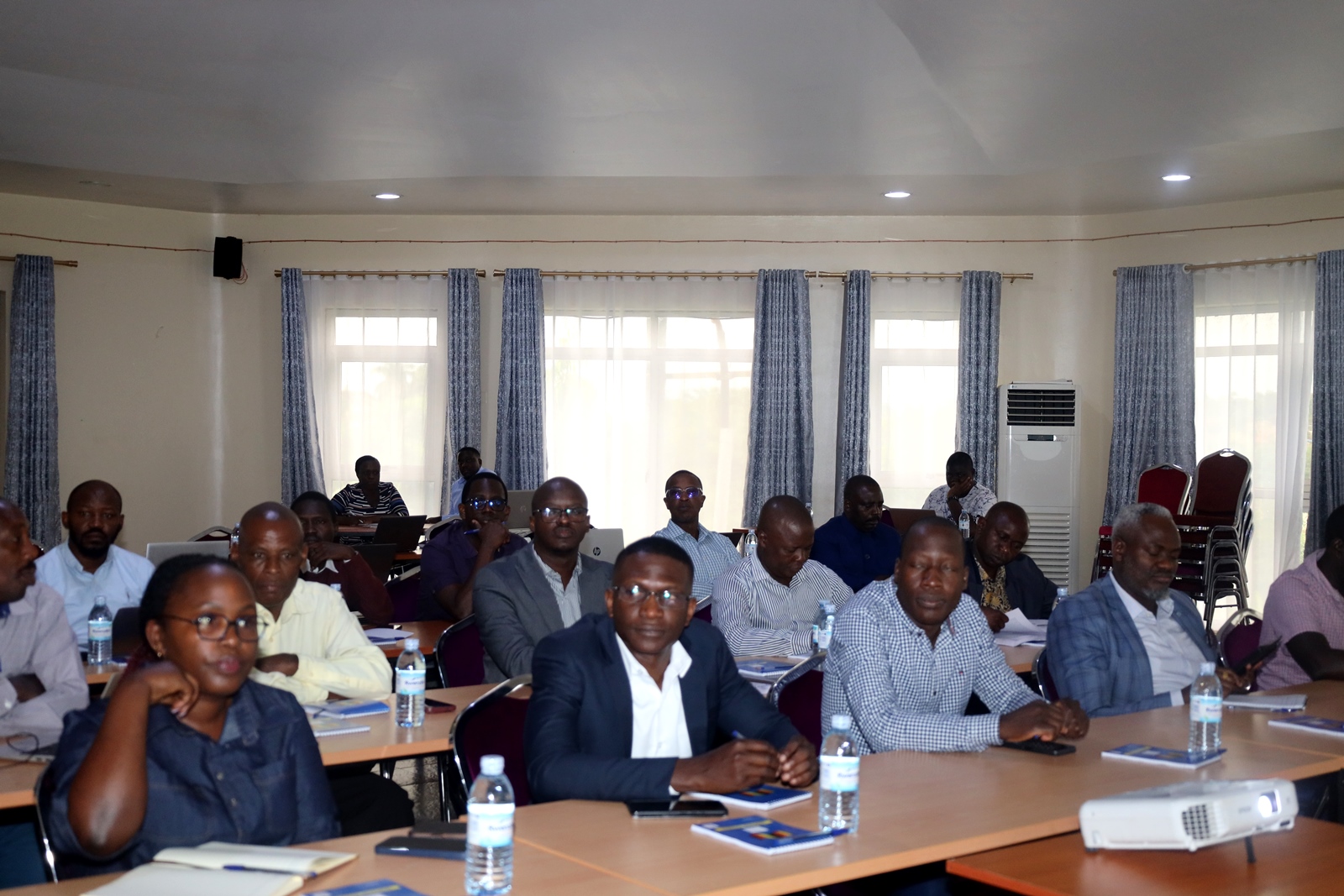
“Through this partnership with the PIM Centre of Excellence, we are not only training individuals—we are building a critical mass of professionals capable of shaping sound public policies,” Mr. Mwanja stated.
The Centre of Excellence will continue to roll out similar trainings throughout the financial year, reinforcing MoFPED’s broader reform efforts under the Fourth National Development Plan (NDP IV) and the 10-Fold Growth Strategy.
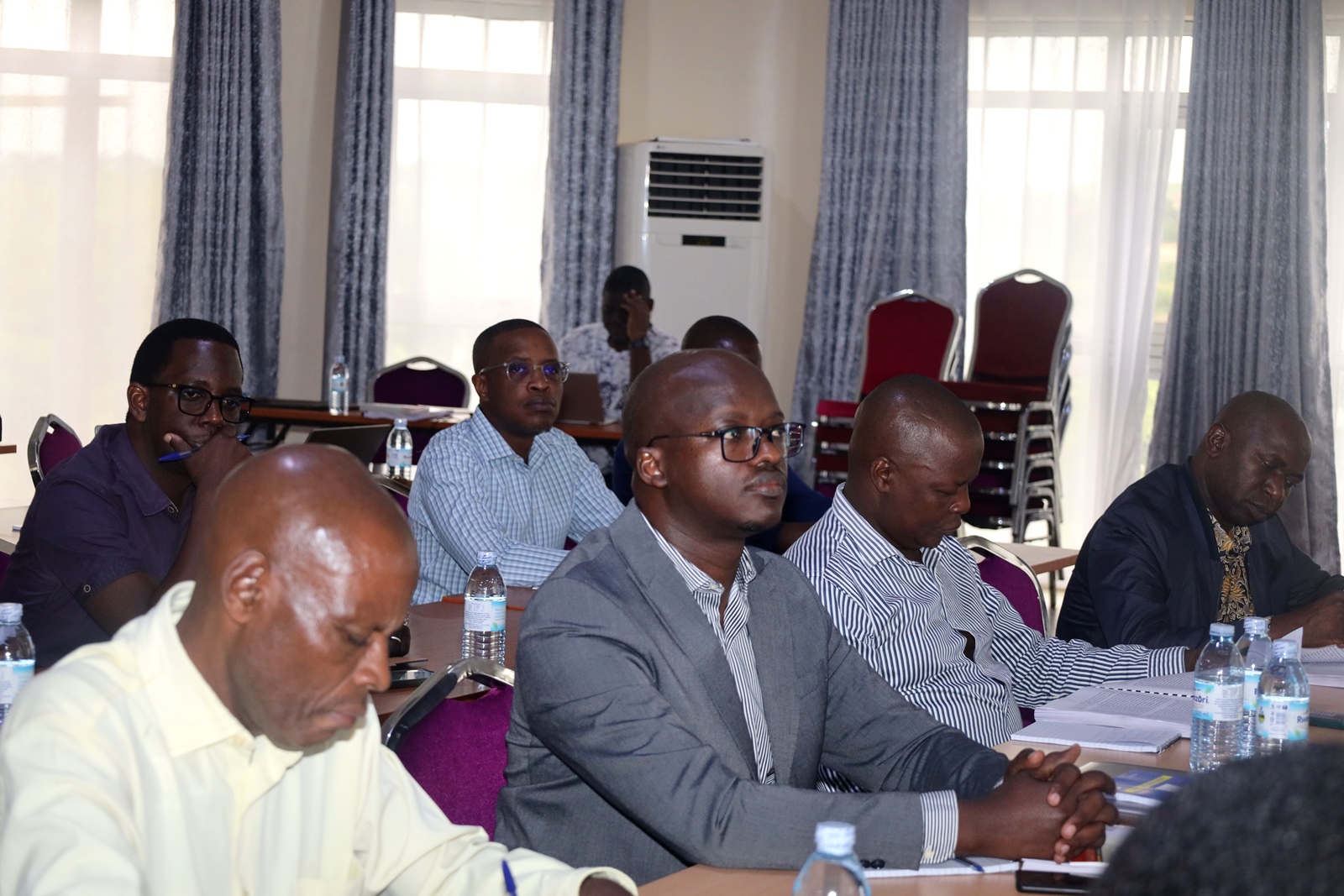
Participants were urged to fully immerse themselves in the training and emerge as champions of high-quality, evidence-based policymaking. “This is how we ensure that every shilling spent by government reflects our national priorities and brings meaningful impact to citizens,” Prof. Bbaale said.
The training reflects the Government of Uganda’s commitment to professionalizing public policy formulation and ensuring that regulatory and legislative proposals are not only visionary but also fiscally responsible and socially inclusive.
Business & Management
Strengthening Europe-Africa Higher Education Collaboration through the NEAR-ER Project
Published
1 week agoon
June 20, 2025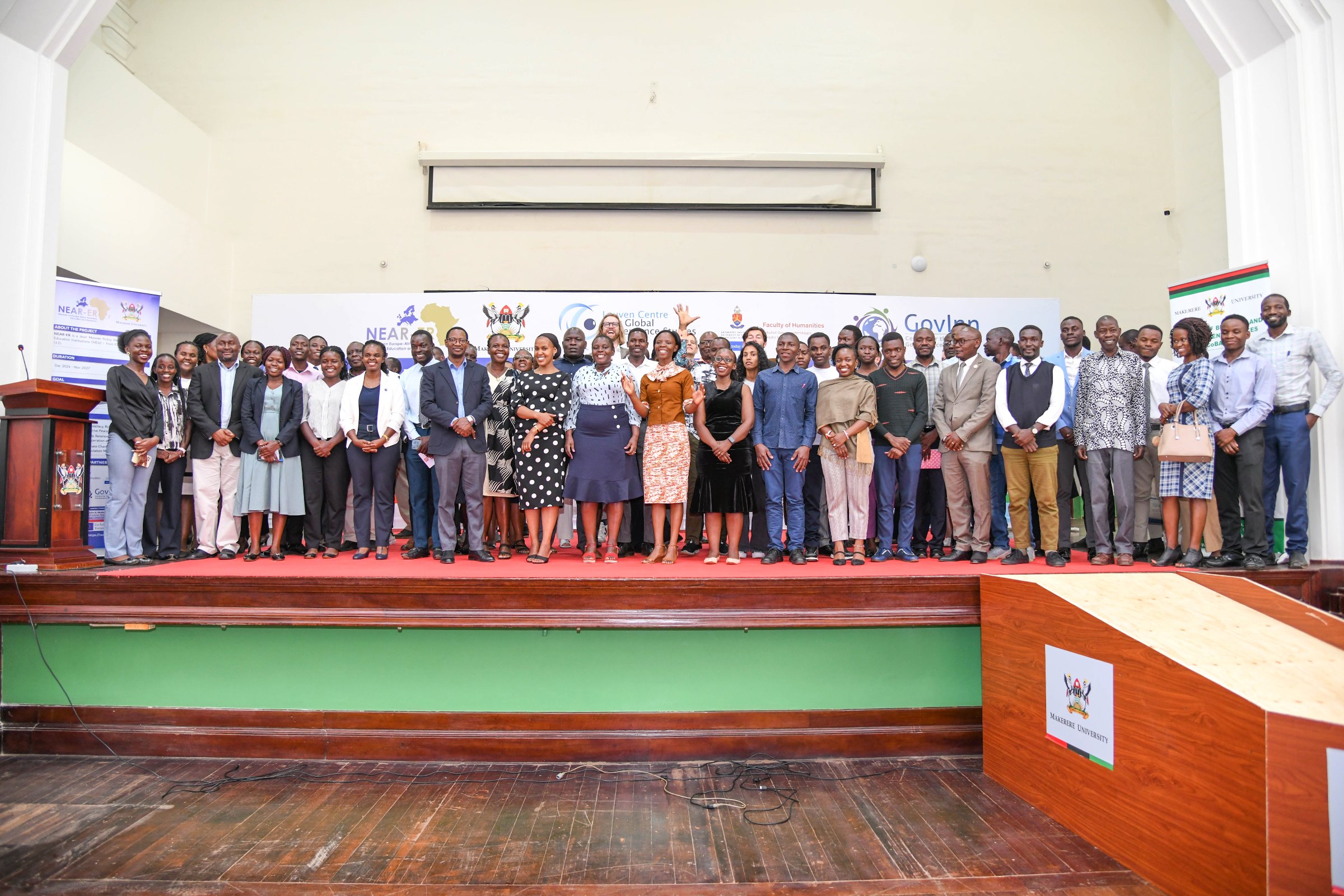
Makerere University in Uganda, is implementing the Network on Europe and Africa Relations-Education and Research (NEAR-ER) project, which seeks to strengthen collaboration in higher education through dialogue, events, scholarly debates, exchange of best practices, and dissemination of research and techniques.
The NEAR-ER is a Jean Monnet policy network of 20 higher education institutions; 7 in Europe and 13 in Africa. The thematic areas include: Shared Peace, Shared Prosperity and Shared Spaces as expounded below:
Shared Peace-Democracy, Rule of Law, Justice and Positive Peace Initiatives; Shared Prosperity-Trade Relations, Development Cooperation and Sustainability; and Shared Spaces-Climate Change, Energy Cooperation and Population Movement
The implementation of the three year (December 2024 to November 2027), NEAR-ER project co-funded by the European Union, follows a successful response, to a call for proposals by researchers based at the School of Statistics and Planning under the College of Business and Management Sciences (CoBAMS). The NEAR-ER research team consists of the following: Dr. John M. Mushomi – Principal Investigator, Dr. Patricia Ndugga, Dr. Elizabeth Nansubuga, Dr. Olivia Nankinga, Dr. Nicholas Tunanukye and Dr. Fred Maniragaba.
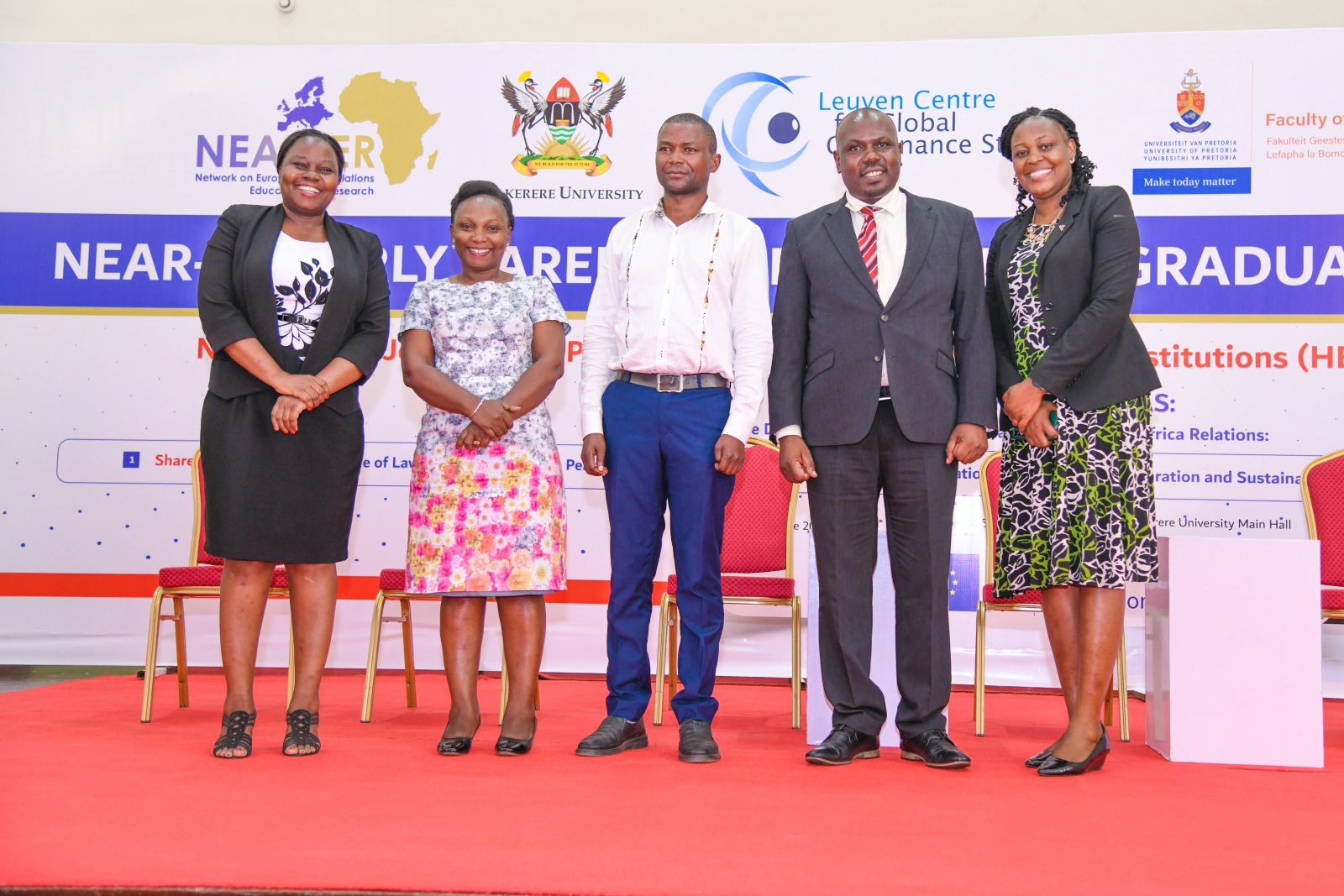
Early Career Researchers and Graduate Students’ Dialogue
On 16th June 2025, Makerere University hosted the NEAR-ER dialogue targeting early career researchers and graduate students from higher education institutions in Uganda.
Featuring remarks from Makerere University officials, an overview of the NEAR-ER project, a panel discussion on the career prospects in the EU, and an interactive question and answer session, the dialogue presented an opportunity to participants to engage with leading scholars in Europe-Africa relations, network with academics across continents, explore research and career prospects in EU-Africa partnerships, contribute to meaningful discussions on contemporary challenges affecting both continents, and gain insights into current trends and future directions in Europe-Africa cooperation.
The following members of the NEAR-ER project tipped early career researchers and graduate students on Africa and Europe relations including research, partnerships, academics, access to scholarships, mobility, networking, and among other important aspects: Prof. Muller Gustavo-the Overall Principal Investigator from KU Lueveni, Prof. Chris Nshimbi-Africa Principal Investigator from University of Pretoria, and Dr. John A. Mushomi-Principal Investigator at Makerere University.
Tour of Makerere University Innovation Pod
Prior to the dialogue, the NEAR-ER delegation toured the Makerere University Innovation Pod (Mak Unipod). Reflecting on the tour, Prof. Muller Gustavo lauded the level of innovation, describing it as a promising space for African-centered academic advancement.
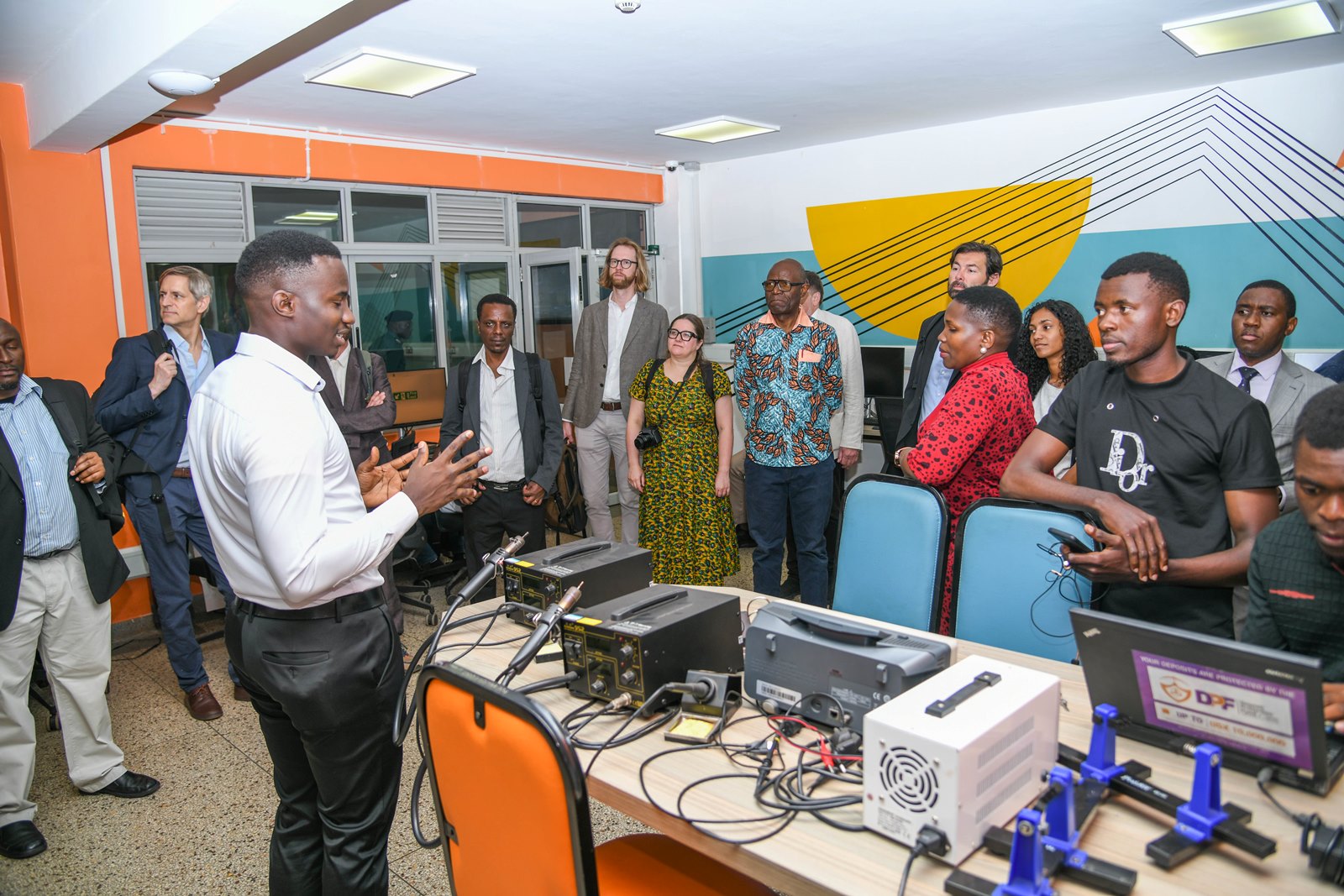
NEAR-ER delegation Courtesy meeting with the Vice Chancellor
The delegation participated in a courtesy meeting with the Vice Chancellor, Prof. Barnabas Nawangwe, who was represented by the Acting Deputy Vice Chancellor (Academic Affairs), Prof. Buyinza Mukadasi. The following University officials participated in the courtesy meeting held in the Vice Chancellor’s Board Room: Associate Prof. James Wokadala-Deputy Principal-College of Business and Management Sciences, Associate Prof. Ibrahim Mike Okumu-Dean, School of Economics, Dr. Margaret Banga-Dean, School of Statistics and Planning, and Dr. John A. Mushomi-Principal Investigator of the NEAR-Project at Makerere University.
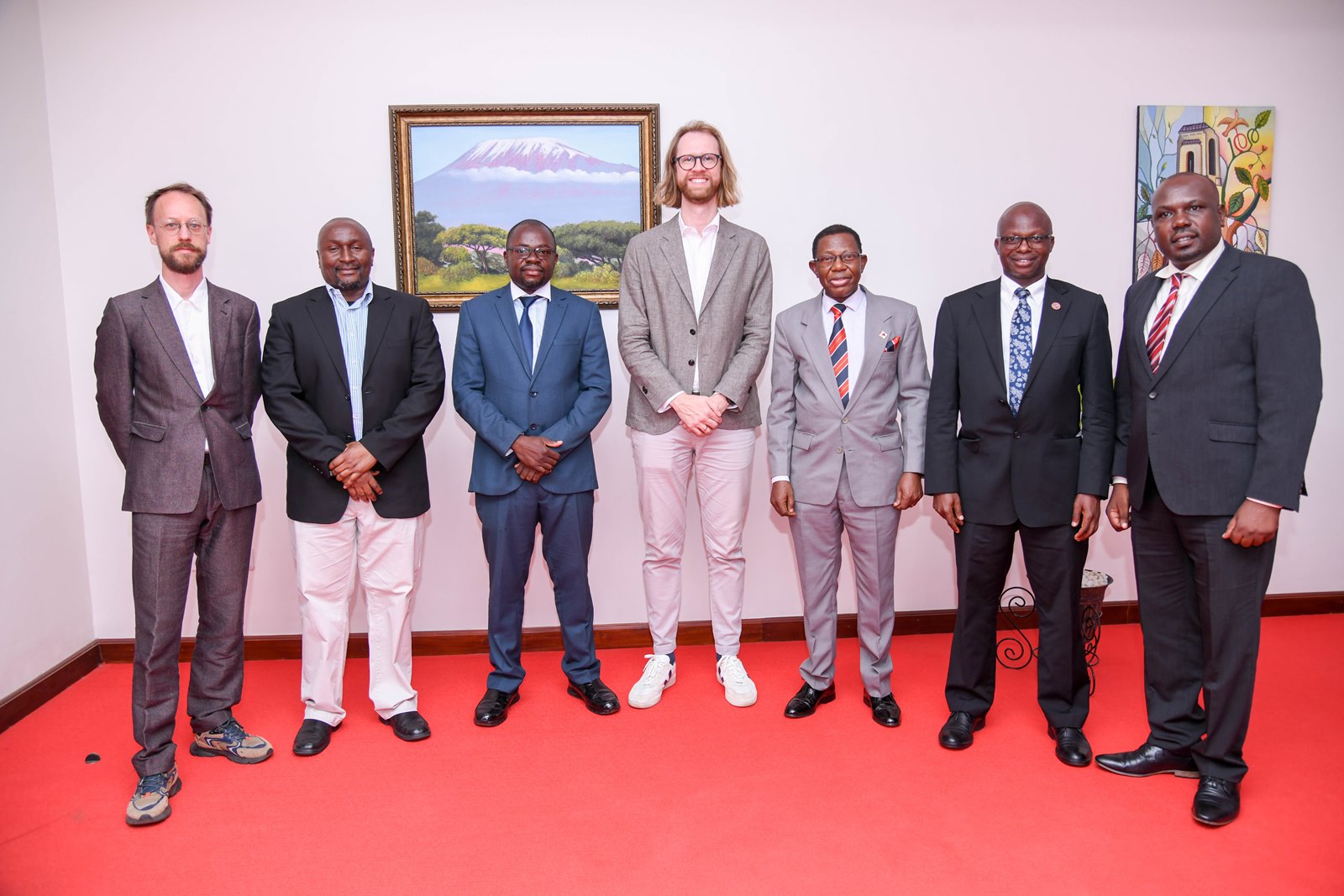
Official Opening of the NEAR-ER dialogue
Opening the NEAR-ER Dialogue on behalf of the Vice Chancellor, Prof. Barnabas Nawangwe, the Acting Deputy Vice Chancellor for Academic Affairs-Prof. Buyinza Mukadasi, underscored the significance of the event, as a defining moment in research collaboration in Africa and Europe. He emphasized that the academic convening provided a strategic platform for deep reflection, meaningful reconnection, and a renewed commitment to joint scholarship that promotes peace, shared prosperity, and inclusive development.
Prof. Buyinza Mukadasi noted that the activities of the NEAR-ER project were aligned with Makerere University’s strategic vision as well as Uganda’s national development agenda. He expressed optimism that the deliberations would spark innovative thinking, strengthen solidarity between Africa and Europe, and help shape a future rooted in shared values, mutual respect, and purposeful collaboration.
He encouraged the participants in the NEAR-ER dialogue to ensure that Africa embraces the Fourth Industrial Revolution through optimizing digitalization systems and processes. He challenged the participants to view the dialogue, as a call to action, and a catalyst for cultivating transformational African leaders equipped with relevant digital skills and employable knowledge. He stressed that the continent’s future hinged on preparing the next generation to confidently navigate and address the demands of the digital age.
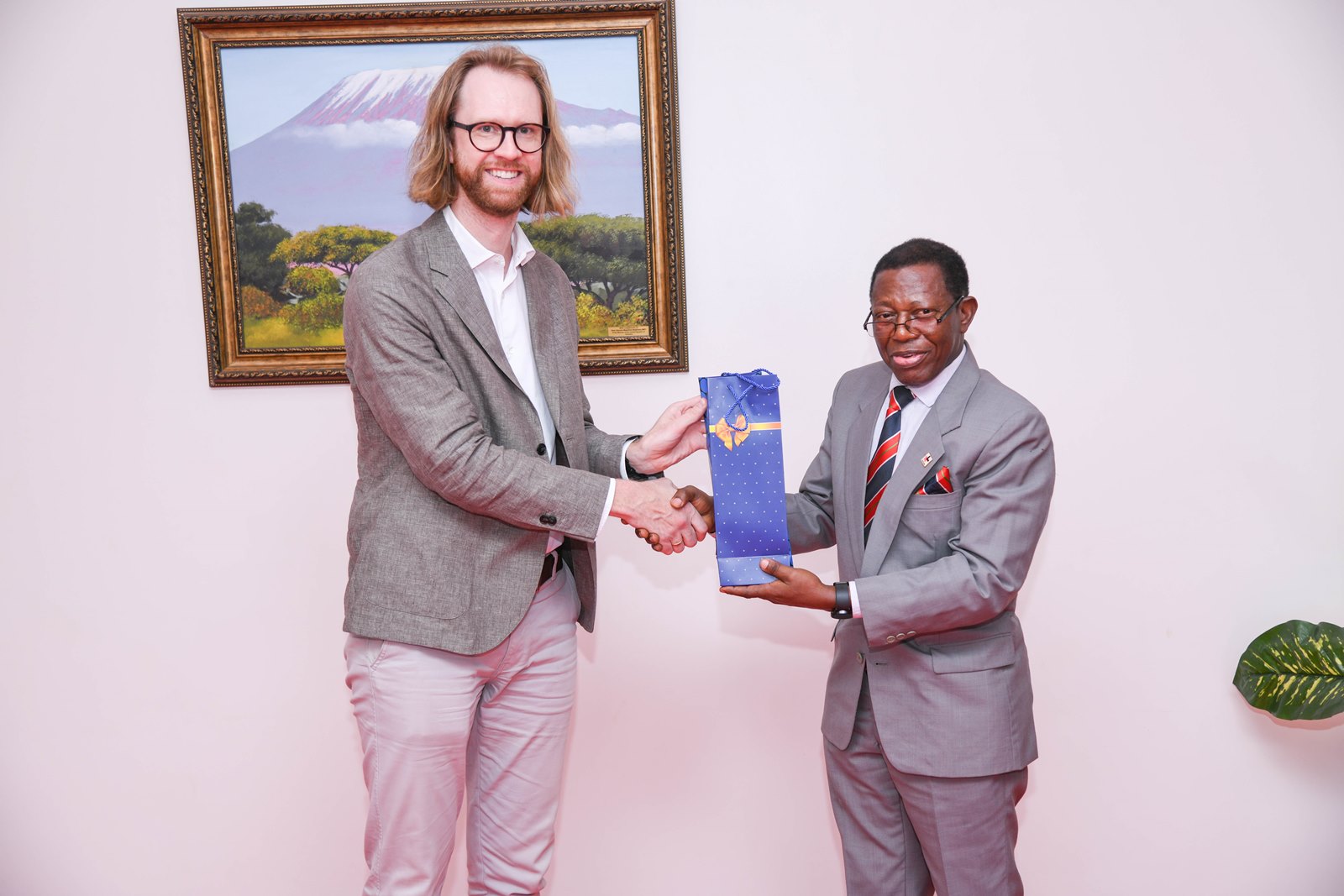
Putting across a strong case for African institutions to take on leadership in the co-production of knowledge, Prof. Buyinza Mukadasi said: “Africa’s development trajectory depends on homegrown ideas, African-led innovation, and the strategic harnessing of global partnerships to address local and global challenges.”
Highlights by the College Principal
The Principal, Prof. Edward Bbaale represented by the Deputy Principal, Associate Prof. James Wokadala, described the NEAR-ER project as a foundational moment in the redefinition of global academic cooperation from the heart of Africa. The Principal called upon the participants to utilize the dialogue to form enduring partnerships.
He underscored the College’s central role in advancing global academic collaboration, within the framework of EU-Africa partnerships in education and research. He noted that the dialogue marked a significant milestone through positioning CoBAMS as a vital conduit for strengthening cross-continental partnerships. He highlighted that the NEAR-ER network’s emphasis on education and research strongly aligned with the College’s mission to foster robust academic linkages between the Global North and South.
The Deputy Principal acknowledged CoBAMS’ unwavering dedication to advancing Makerere University’s agenda of becoming a global academic e-hub, particularly within the evolving landscape of EU-Africa relations. He reported that the College was actively undertaking strategic initiatives to deepen international engagement—initiatives designed to foster mutual learning, catalyze collaborative research, and create meaningful career development pathways.
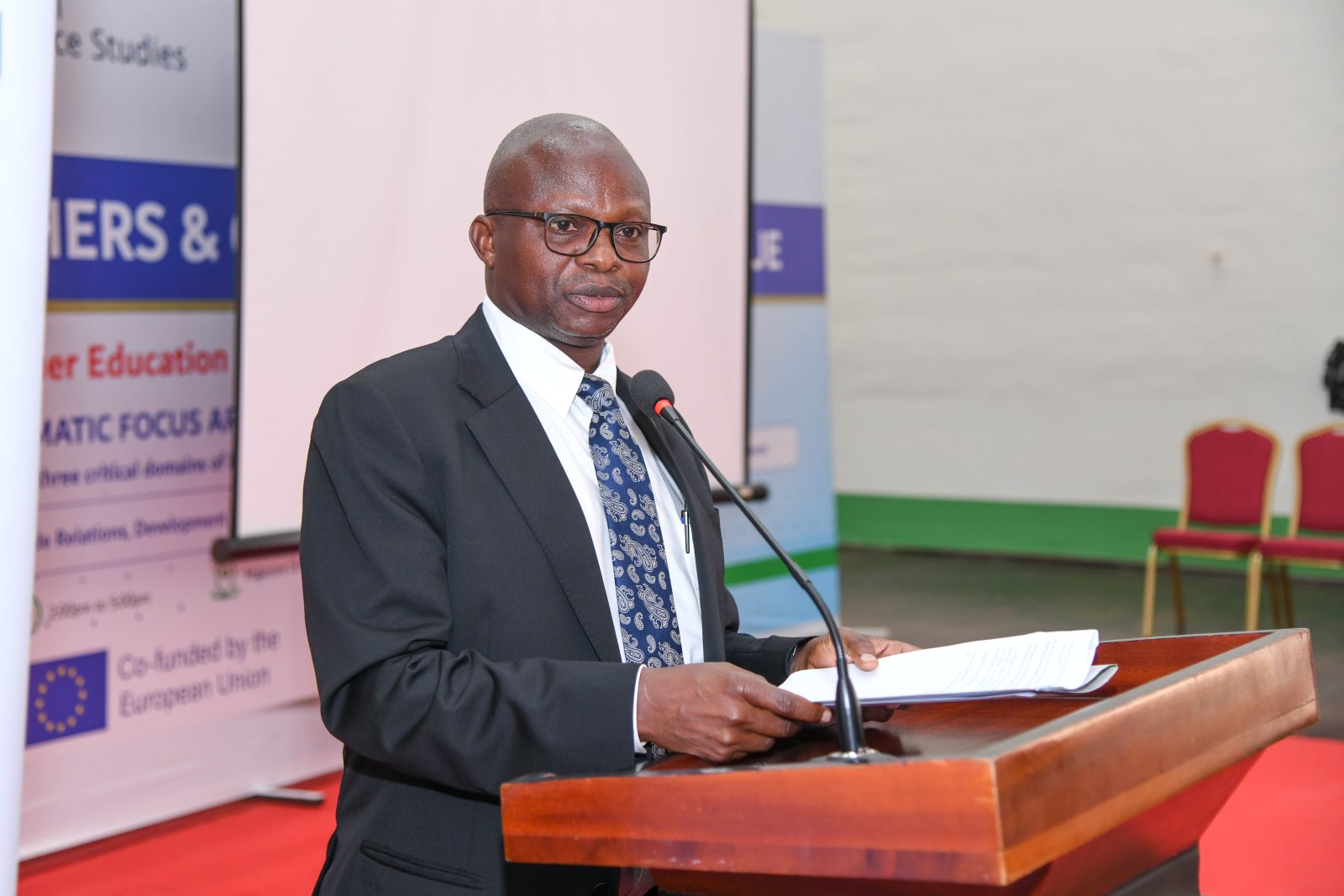
“The College leadership has prioritized supporting young researchers and postgraduate students, thus empowering the next generation of scholars to thrive in an increasingly interconnected academic ecosystem,” he said.
Highlights from the Principal Investigator
Focusing on the critical role of students in academic institutions, Dr. John A. Mushomi, the Principal Investigator of the NEAR-ER project at Makerere University, said: “Our students are our main customers. We should therefore nurture and empower our learners through global research and engagements.”
Dr. Mushomi highlighted the importance of providing a “safe engagement space” for students and researchers. Reflecting on his academic journey, and postdoctoral fellowship, he acknowledged the relevance of seeking mentorship, citing it as an instrumental step in his path to the NEAR-ER network.
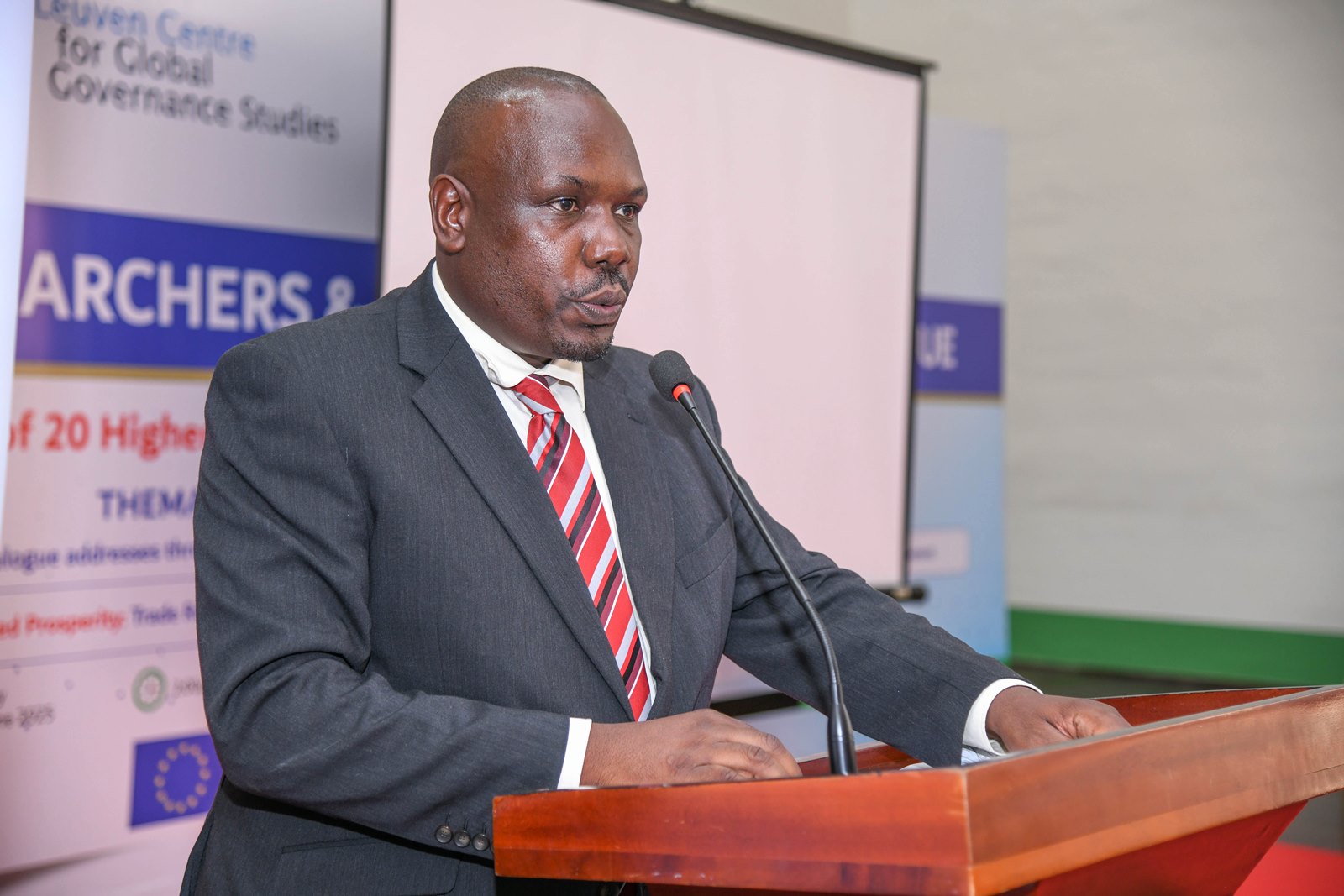
He also acknowledged the long-term collaborative efforts that led to the successful NEAR-ER grant proposal, notably involving both Makerere University and Kyambogo University.
Overview of the NEAR-ER project
Presenting the Overview of the NEAR-ER project, Prof. Muller Gustavo, a Senior Researcher at the London Centre for Global Government Studies underscored the critical importance of collaborative research and education between Europe and Africa. He noted that holding the first African convening/dialogue at Makerere University was both strategic and symbolic of the growing academic ties between the two continents.
Delving into the origins of the project, Prof. Gustavo revealed that the idea for the network was conceived approximately three years prior, where they envisioned a platform that would encourage dialogue, research, and exchange on topics central to Europe–Africa relations. They rallied scholars from diverse institutions, forming a vibrant and interdisciplinary consortium.
“Over the last three years, we put together a group of universities to foster and facilitate research and communication on relationships between Africa and Europe. The goal of the consortium is to disseminate the research and education practices, the best practices of education in Africa, in Europe, but also worldwide,” he said.
Prof. Gustavo highlighted that the NEAR-ER project will serve as a vehicle to foster best practices in education, research dissemination, and policy-relevant collaboration. He noted that the network intentionally included universities and institutions representing diverse linguistic and cultural contexts, affirming their commitment to inclusivity and comprehensive regional representation. According to Prof. Gustavo, this diversity strengthens the network’s mission to bridge educational and research gaps between the global north and south.
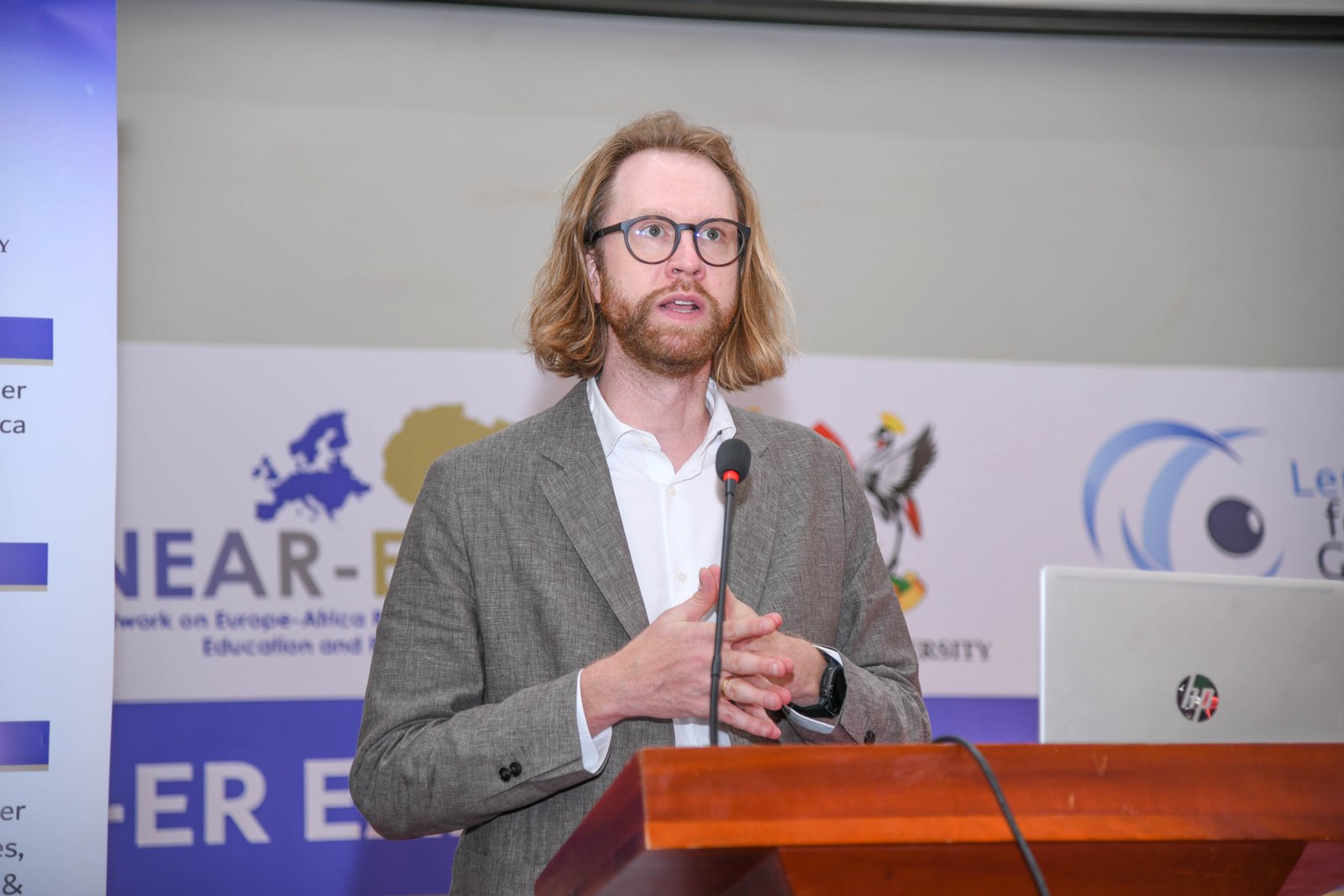
Beyond institutional collaboration, Prof. Gustavo emphasized the network’s commitment to public engagement and knowledge dissemination. He detailed a range of outputs already in motion, including research blogs, podcasts, newsletters, webinars, policy surveys, and country-specific forecasts.
Prof. Gustavo urged the students and young scholars to become active contributors to the NEAR-ER platform. He explained that the network is open to ideas from emerging voices—whether through blogs, podcasts, or other digital formats—and provides a unique opportunity for students to share perspectives and shape global discourse.
“There might be opportunities here for some of you that are interested in further increasing your knowledge on European integration, African integration, and the relationship between those two processes. You may be a student who has an idea on how to improve the relationship and looking at a particular aspect to get that idea out to the world, we can offer that destination platform for you as well,” Prof. Gustavo mentioned.
Remarks by the Dean, School of Statistics and Planning
Dr. Margaret Banga, the Dean of the School of Statistics and Planning, informed the participants, that the dialogue was a space to unite the varied disciplines and backgrounds present, all in pursuit of a shared vision for the future.
“The NEAR-ER initiative is more than a research collaboration. It is a bridge of solidarity between Europe and Africa—a platform where shared learning leads to shared solutions. It is not about the North teaching the south, but it is about learning from one another,” Dr. Banga said.
Standing as a firm believer in the transformative power of research, innovation, and youthful curiosity, Dr. Banga, underscored the importance of structure and strategy in translating ideas into impact. She encouraged the audience to treat planning as the bridge between possibility and progress. She stressed that without a clear methodology, timeline, partners, and budget, even the most brilliant ideas can fade into obscurity, but with a solid plan, those same ideas can evolve into funded projects, published policy briefs, and life-changing solutions.
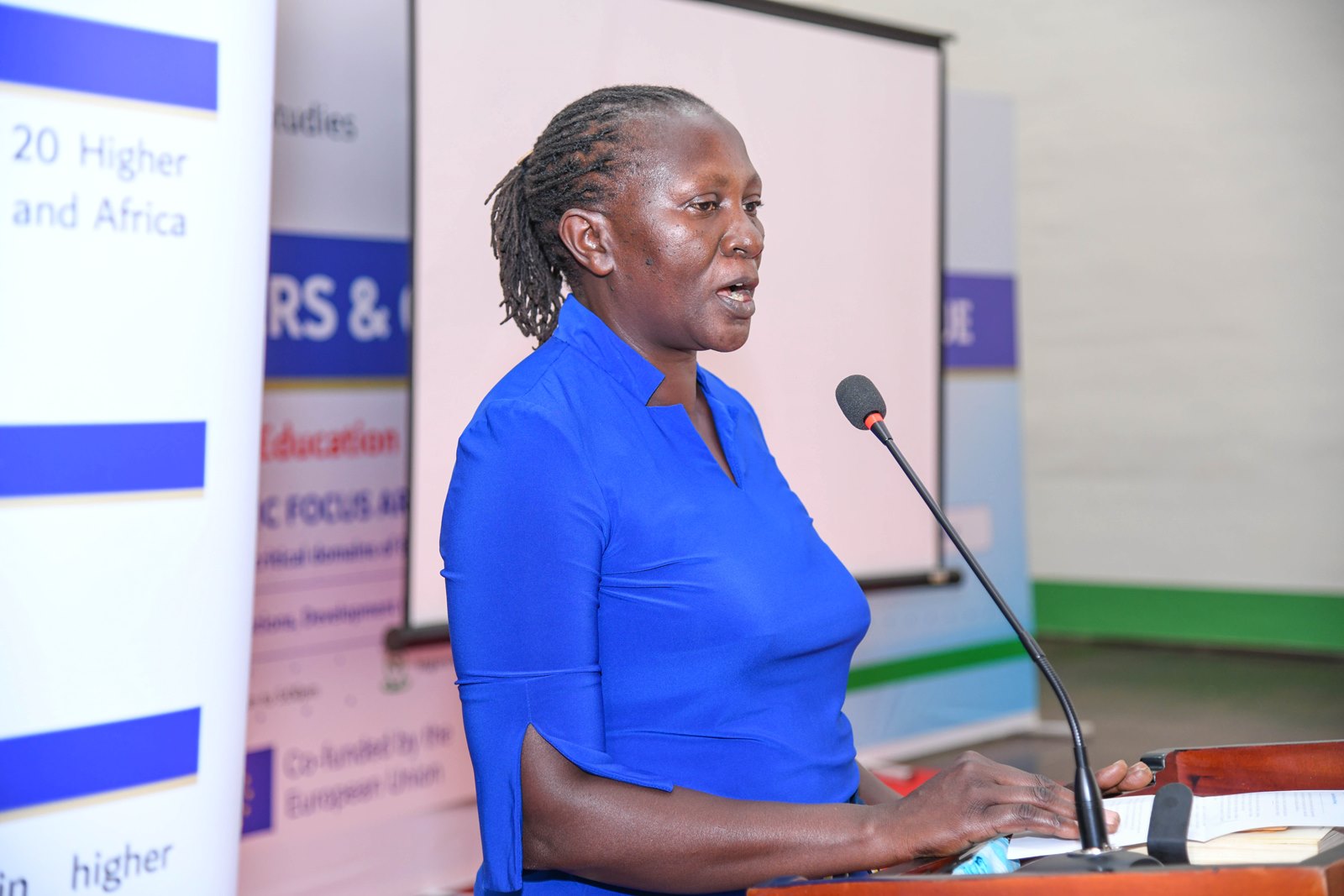
To the young scholars, Dr. Banga issued a powerful call to action. “You are the thinkers who will unlock Africa’s economy,” she said. “You are the innovators who will shape climate resilience. You are the analysts and planners who will rethink development—not as something done for us, but as something shaped by us.”
With conviction and hope, Dr. Banga reminded the young scholars that they were not mere students, but emerging leaders, and agents of change. She urged them not to wait for some future moment of “expertise” before stepping up. She offered a critical reminder that every question they pose, every network they build, and every inquiry they pursue is already shaping the world, “Your research is not small because you are just starting out, your work has the power even now to improve lives and influence generations. Don’t just study the world. Change it.”
A voice from the PhD Students
Ms. Claire Cheremoi, President of the PhD Fellows at Makerere University, expressed her appreciation for the spirit of unity and collaboration fostered by the NEAR-ER dialogue. “Our voices matter. Coming together as students is powerful,” she said.
Ms. Cheremoi emphasized the value of collective engagement, stressing that such platforms were essential in facilitating the sharing of knowledge, fostering meaningful networks, and sparking critical discussions on the issues that matter most to young scholars. She stated their commitment to engaging in conversations on research funding, interdisciplinary collaboration, and broader academic partnerships.
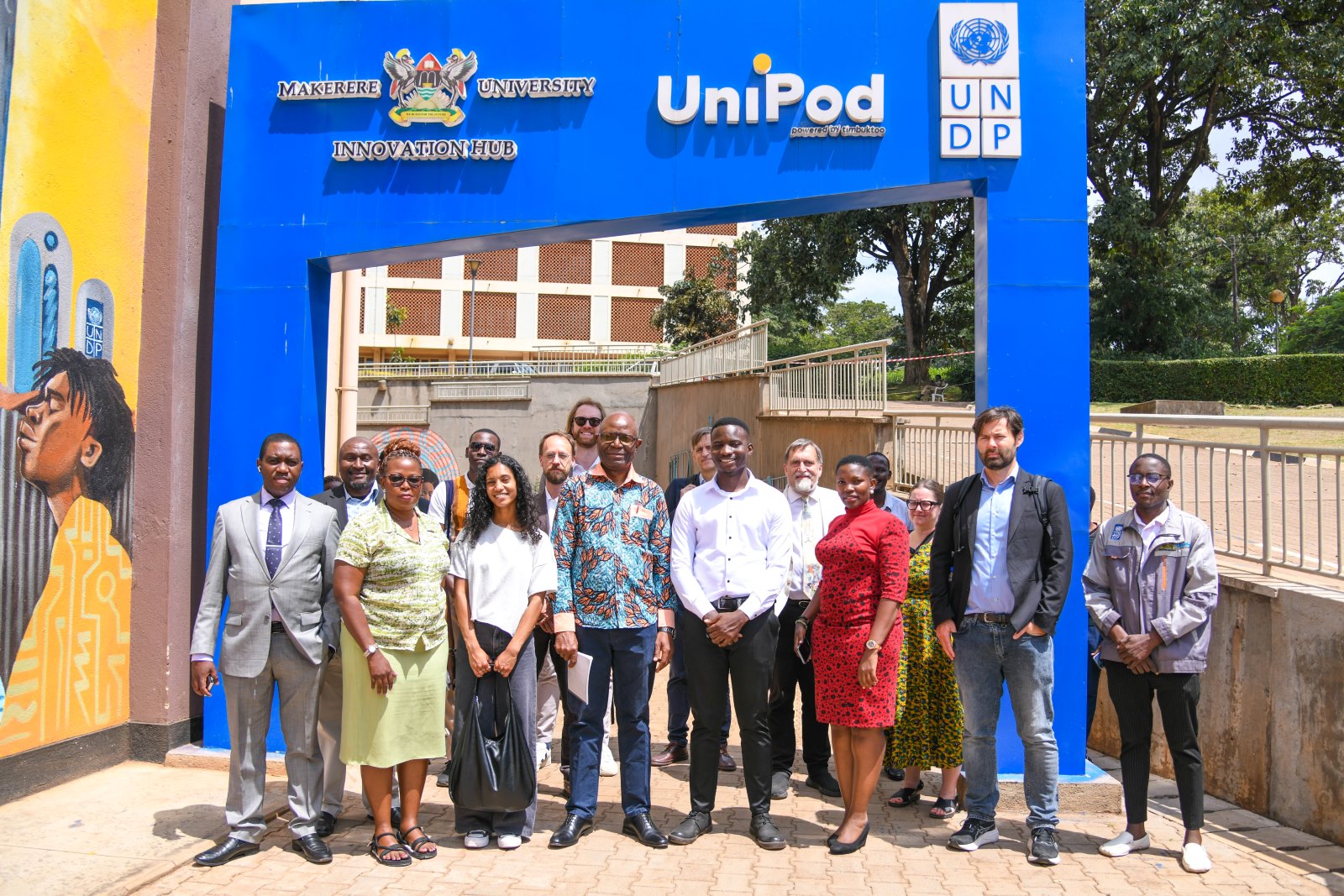
A statement from the representative of undergraduate students
Mr. Ssozi Fahad Batte, Chairperson, Students Guild Council, College of Business and Management Sciences acknowledged the students had the zeal to learn, grow, and contribute meaningfully. In his view, the most significant outcome of such dialogues was the ability to extract value—something “to take home.”
He stated the critical role of documentation, urging fellow participants to write down their ideas, strategies, and action points in order to share them beyond the event. He also highlighted the importance of networking, stressing that connections and collaborations were central to growth in academia and beyond.
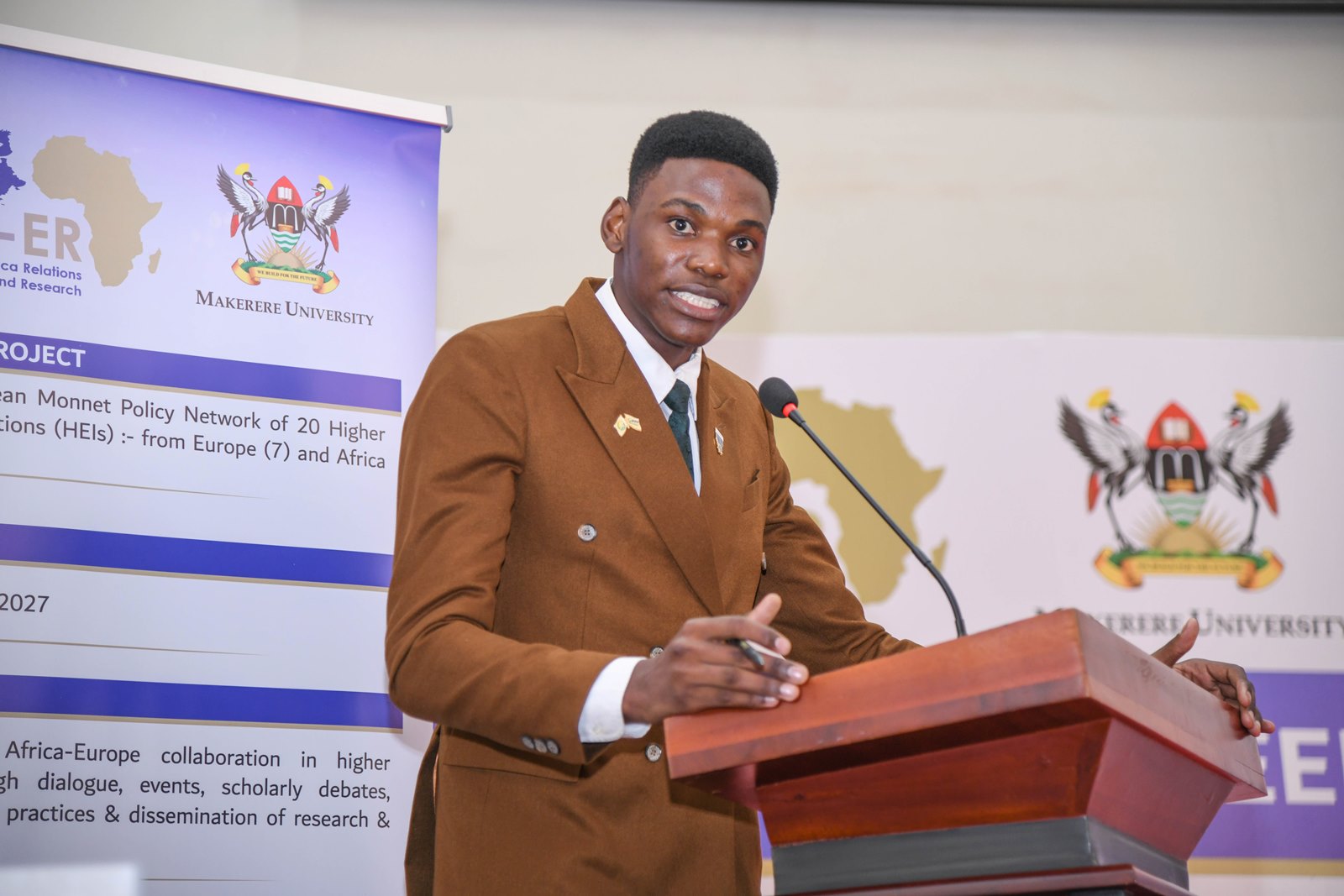
Panel discussion on Career Prospects in the EU
In a panel discussion moderated by Dr. Robert Ojambo from Kyambogo University, several international scholars shared invaluable insights on navigating academic and professional opportunities abroad—particularly for students and researchers from the Global South.
The panel discussion offered a wealth of practical insights for young scholars seeking academic and professional opportunities across borders. The panelists emphasized the importance of building trust-based networks, as well as, going beyond emails to form genuine relationships with professors, peers, and institutions.
Strategic planning emerged as a recurring theme during the panel discussion—highlighting the need to research language requirements, living costs, and cultural differences when selecting destinations. Participants encouraged scholars from the Global South to view their unique backgrounds as assets that contribute to valuable perspectives to global discourse.
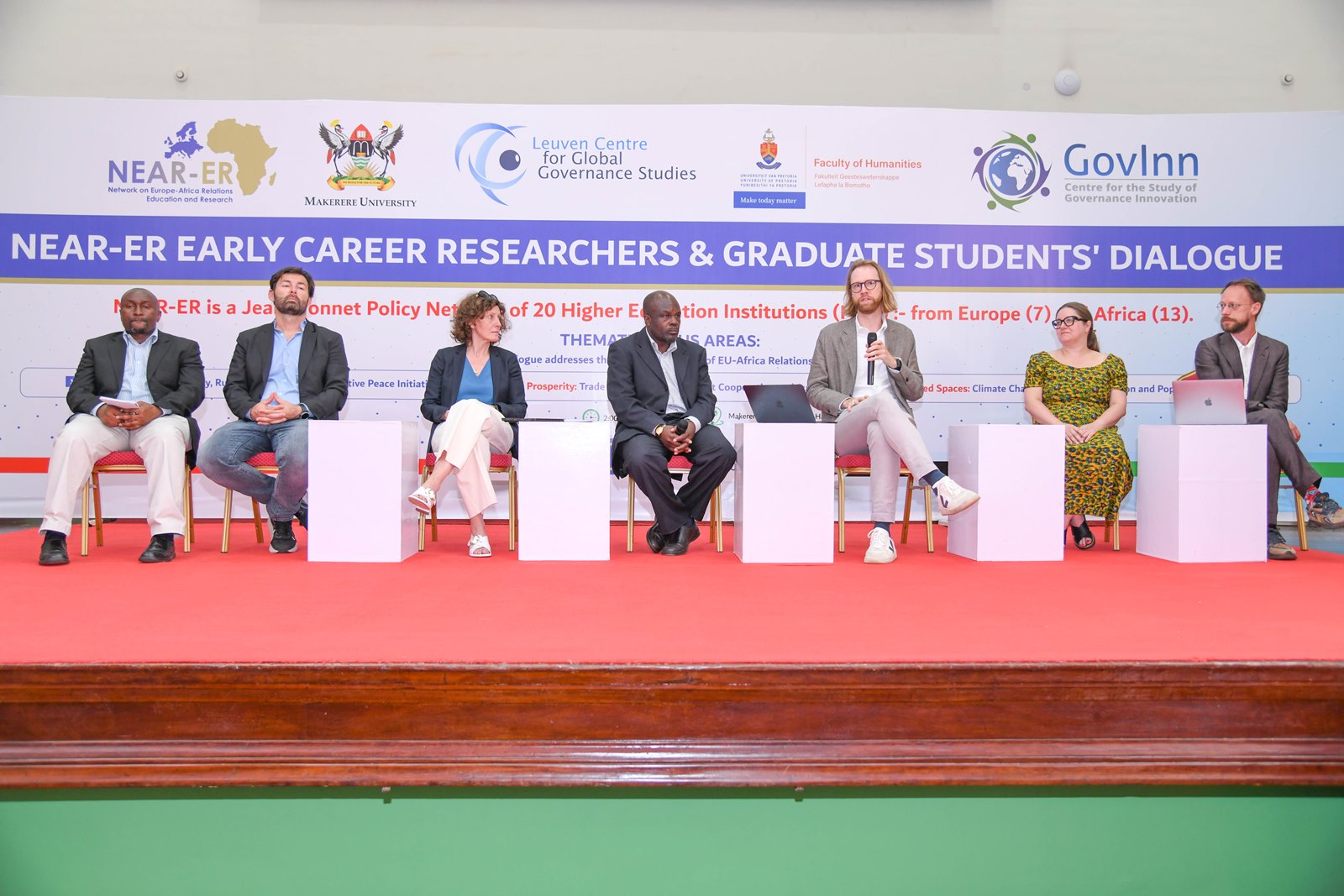
Opportunities such as Intra-Africa Academic Mobility programs, and summer schools were also presented as transformative pathways that combine education, exposure, and networking. The discussion also stressed the power of initiative—actively reaching out, applying, volunteering, and making oneself visible in digital academic spaces. Importantly, career success was linked not just to passion, but to aligning one’s skills with institutional needs and being open to unpaid roles such as voluntary service that build experience and credibility. The overall message was clear: international academic success requires preparation, adaptability, and the courage to take the first step.
As participants engaged across these thematic areas, the NEAR-ER dialogue underscored the central role of universities in bridging regions, amplifying diverse voices, and generating research-driven responses to global emergencies. The NEAR-ER dialogue held at Makerere University was not just a reflection of academic solidarity—it was a declaration of shared purpose and a call to action in re-imagining a more just, peaceful, and sustainable future across continents.
Business & Management
Prudential Uganda invests UGX 135 million in Makerere’s Top 5 Actuarial Graduates
Published
3 weeks agoon
June 12, 2025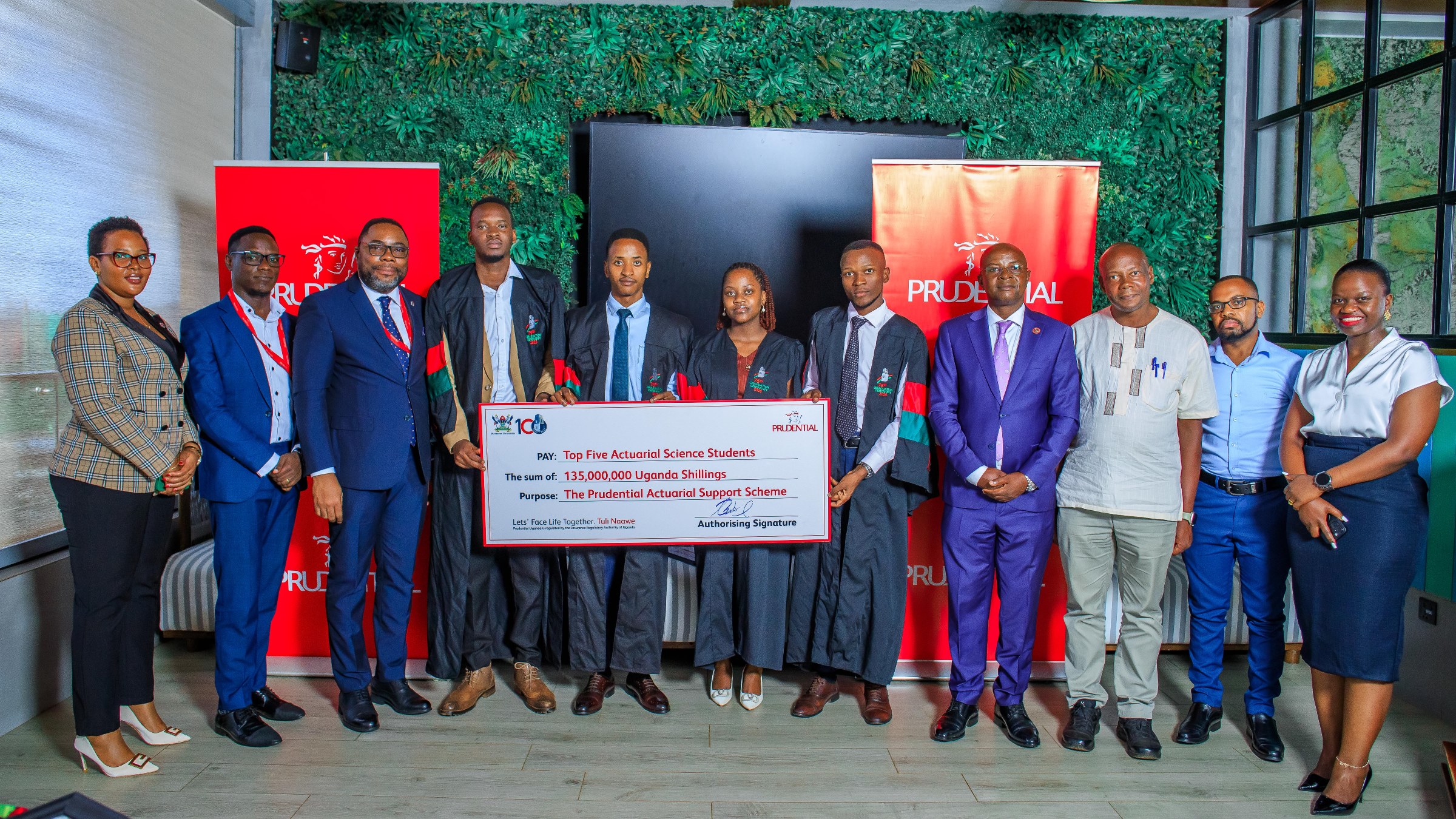
In a strategic move aimed at strengthening Uganda’s financial and insurance sectors, Prudential Uganda has awarded UGX 135 million to the top five graduates of Makerere University’s Actuarial Science program, underscoring its firm commitment to nurturing globally competitive actuarial talent within the country.
The initiative, operating under the Prudential Actuarial Support Scheme (PASS) is a transformative partnership launched in 2022 between Prudential Uganda and Makerere University, anchored in a five-year renewable agreement aimed at cultivating professional excellence in actuarial science through merit-based support. Under this scheme, the top five actuarial graduates from the College of Business and Management Sciences (CoBAMS) at Makerere University are each awarded a cash prize of USD 500—a tangible recognition of academic brilliance and perseverance.
Beyond the monetary reward, PASS provides a robust framework of academic and professional support, including sponsorship for globally recognized certification exams, industry mentorship, and hands-on training opportunities. This holistic approach ensures that Uganda’s brightest actuarial minds are not only celebrated, but also empowered to thrive on the global stage.
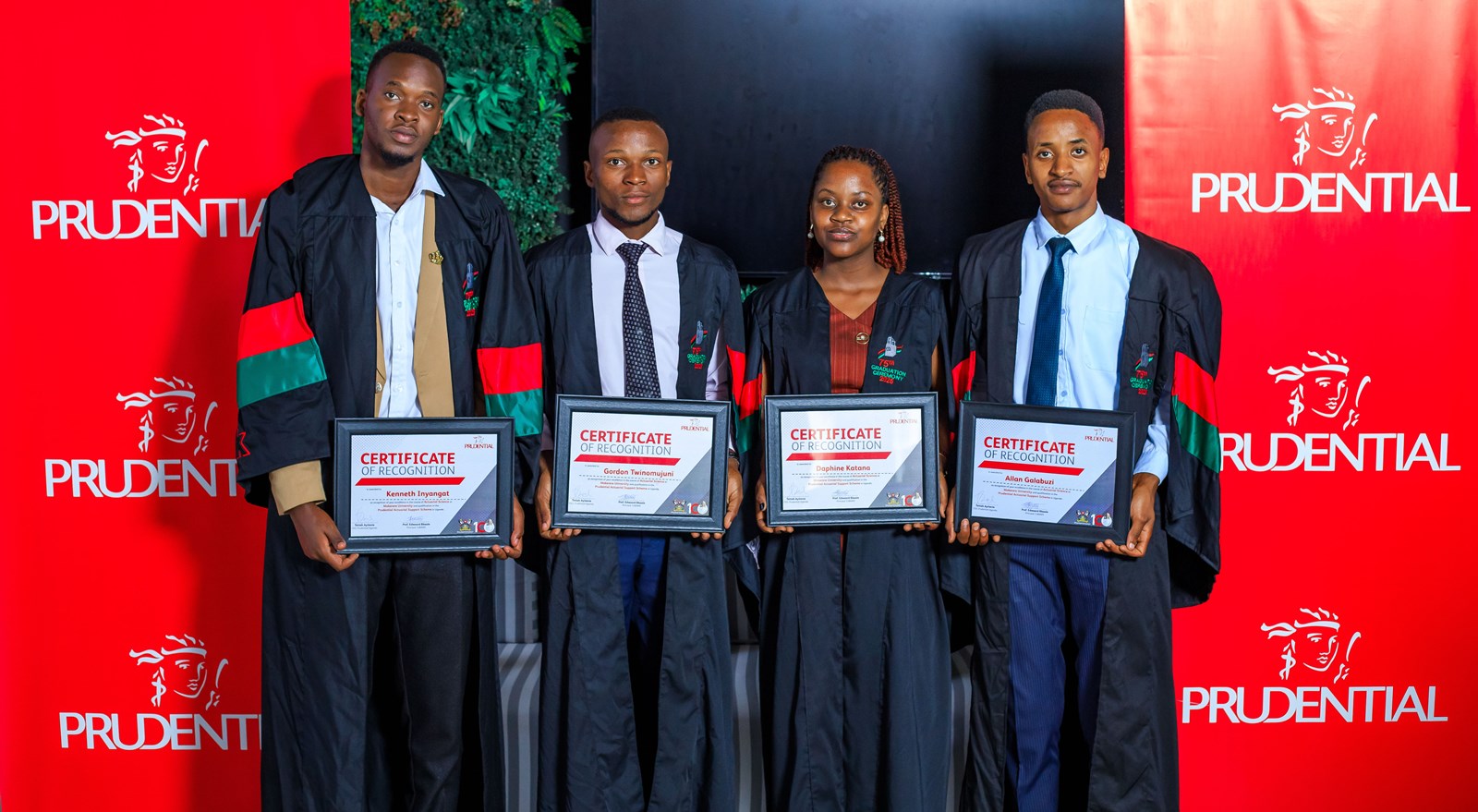
During a press conference held on 11th June 2025, the five exceptional graduates were recognized for their academic excellence and potential to shape the future of Uganda’s financial services industry. Mr. Brendan Joseph Lule, Mr. Gordon Twinomujuni, Mr. Allan Galabuzi, Ms. Daphine Katana, and Mr. Kenneth Inyangat—each received a cash prize of USD 500 and full sponsorship for globally recognized actuarial certification exams. This award positions them on an accelerated path toward international professional accreditation.
Speaking during the press briefing, Prof. Edward Bbaale, Principal of the College of Business and Management Sciences (CoBAMS), applauded the partnership between Makerere University and Prudential Assurance Uganda for coming up with an initiative that inspires students to aim higher and a clear message that their hard work is recognized and valued beyond the lecture halls.
Prof. Bbaale described the collaboration, formalized under PASS as a transformative coalition that would significantly shape the future of actuarial science education in Uganda. He emphasized the real-world value of the support offered through the scheme, noting that at least 10 students undertook professional actuarial exams under the initiative. He highlighted that the top-performing student is further rewarded with a one-year apprenticeship at Prudential Uganda—an opportunity he described a profound investment in hands-on experience and career development. He reported that at least two graduates had benefited from this prestigious placement, gaining invaluable industry exposure that bridges academic excellence with professional practice.
“The PASS is a visionary initiative that rewards academic excellence and builds professional capacity. Through this scheme, the top five actuarial science graduates each year will receive cash prizes of $500. They will also benefit from support for professional certification exams, including those offered by the Institute and Faculty of Actuaries and the Society of Actuaries,” Prof. Bbaale remarked.
At the national level, Prof. Bbaale emphasized that the collaboration between Makerere University and Prudential Uganda directly addresses Uganda’s pressing need for skilled actuaries in key sectors such as insurance, pensions, and healthcare. He noted that the Prudential Actuarial Support Scheme effectively aligns academic training with industry demands, thereby enhancing the relevance of university education in the context of national development. He remarked that this alignment contributes meaningfully to Uganda’s human capital development agenda and supports the broader goal of strengthening institutional capacity in financial risk management.
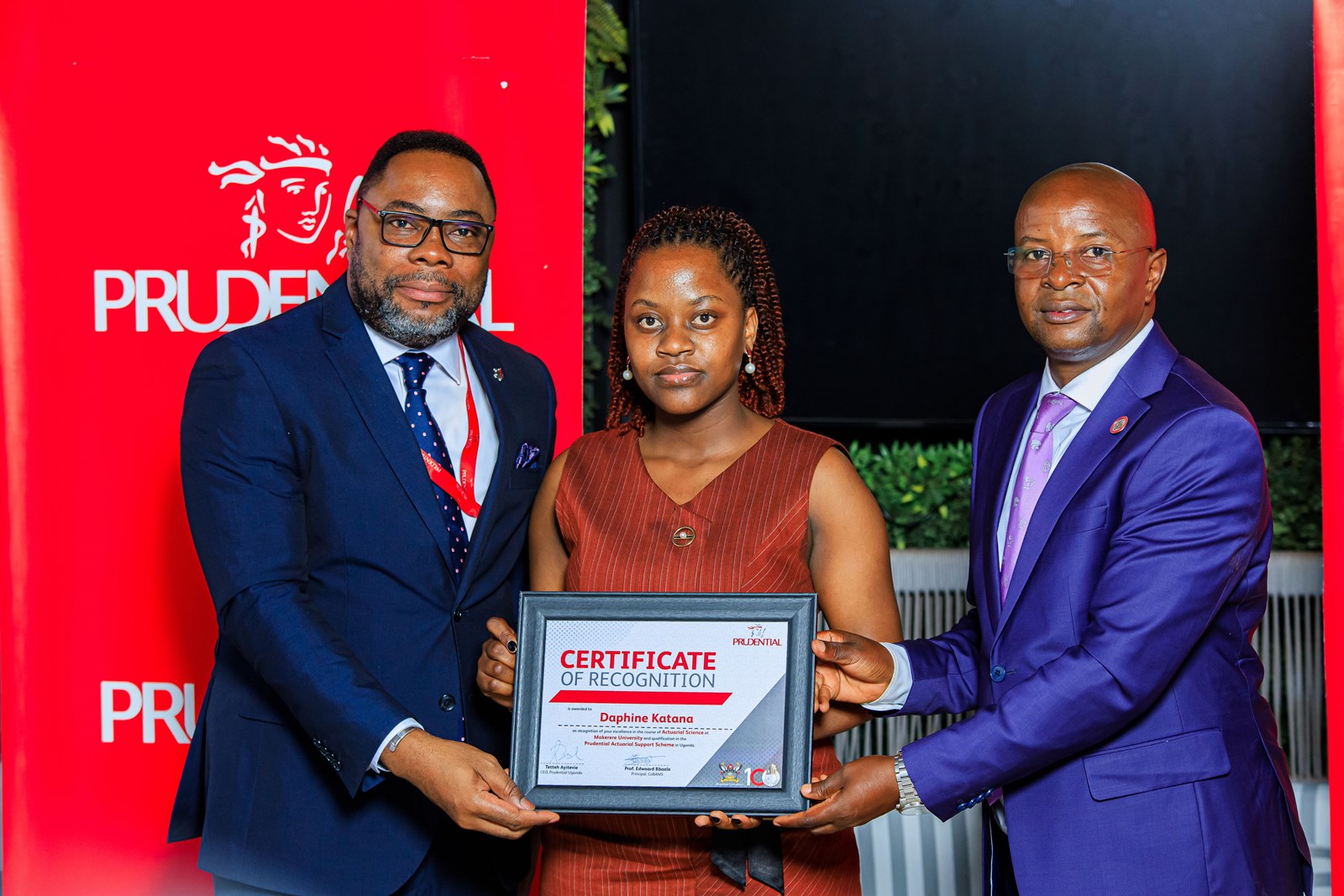
The Principal commended Prudential Assurance Uganda for their visionary support and long-term commitment. He said the partnership with Makerere University College of Business and Management Sciences (CoBAMS) represents more than a financial investment, but a bold step toward professionalizing actuarial education in Uganda and preparing students for leadership and service in the financial sector. “Together, we are building a stronger, more skilled Uganda—one actuary at a time,” he affirmed.
Describing the occasion as a celebration of excellence, resilience, and the immense potential of a new generation of actuaries destined to shape Uganda’s insurance and financial landscape, Mr. Tetteh Ayitevie, Chief Executive Officer of Prudential Uganda, expressed deep pride in the Prudential Actuarial Support Scheme.
He stated that the initiative is a bold and forward-looking investment in the country’s actuarial leadership. He commended the graduates for their academic tenacity and discipline, noting that their achievements reflected not only personal merit, but also the promise of a stronger, self-sustaining insurance sector.
“You have survived the course load, and now, you are stepping into the real world ready to contribute meaningfully. We see you. We believe in you. And we are proud of you,” Mr. Ayitevie said.
He reiterated the crucial role of actuarial science in modern economies, highlighting it as the engine behind robust insurance frameworks, risk modeling, and long-term financial planning. According to Mr. Ayitevie, despite its understated visibility, actuarial work underpins the stability of entire financial systems, and Uganda must rise to the challenge of building this critical professional cadre.
“Actuarial science may not be the loudest career path, but it is one of the most vital. It’s the heartbeat of any insurance company. It’s where math meets life. It’s where you predict risks, protect people, and create sustainable financial systems,” he stated.
He also drew attention to the glaring gap in Uganda’s actuarial landscape, noting the country’s limited number of certified actuaries in contrast to its population size. He stressed the urgency of cultivating homegrown expertise rather than relying on outsourced talent, positioning the Prudential Actuarial Support Scheme as a strategic intervention to reverse this trend.
Trending
-

 General3 days ago
General3 days agoMature Age Scheme Exam Results for 2025/2026
-

 General6 days ago
General6 days agoFreshers’ Joining Instructions 2025/2026
-

 General1 week ago
General1 week agoMastercard Foundation Board pays its inaugural visit to Makerere University
-

 General1 week ago
General1 week agoUVCF Makes Case for HEAC Programme
-

 Natural Sciences2 weeks ago
Natural Sciences2 weeks agoCoNAS Participates in the 2025 National Science Week Exhibition
